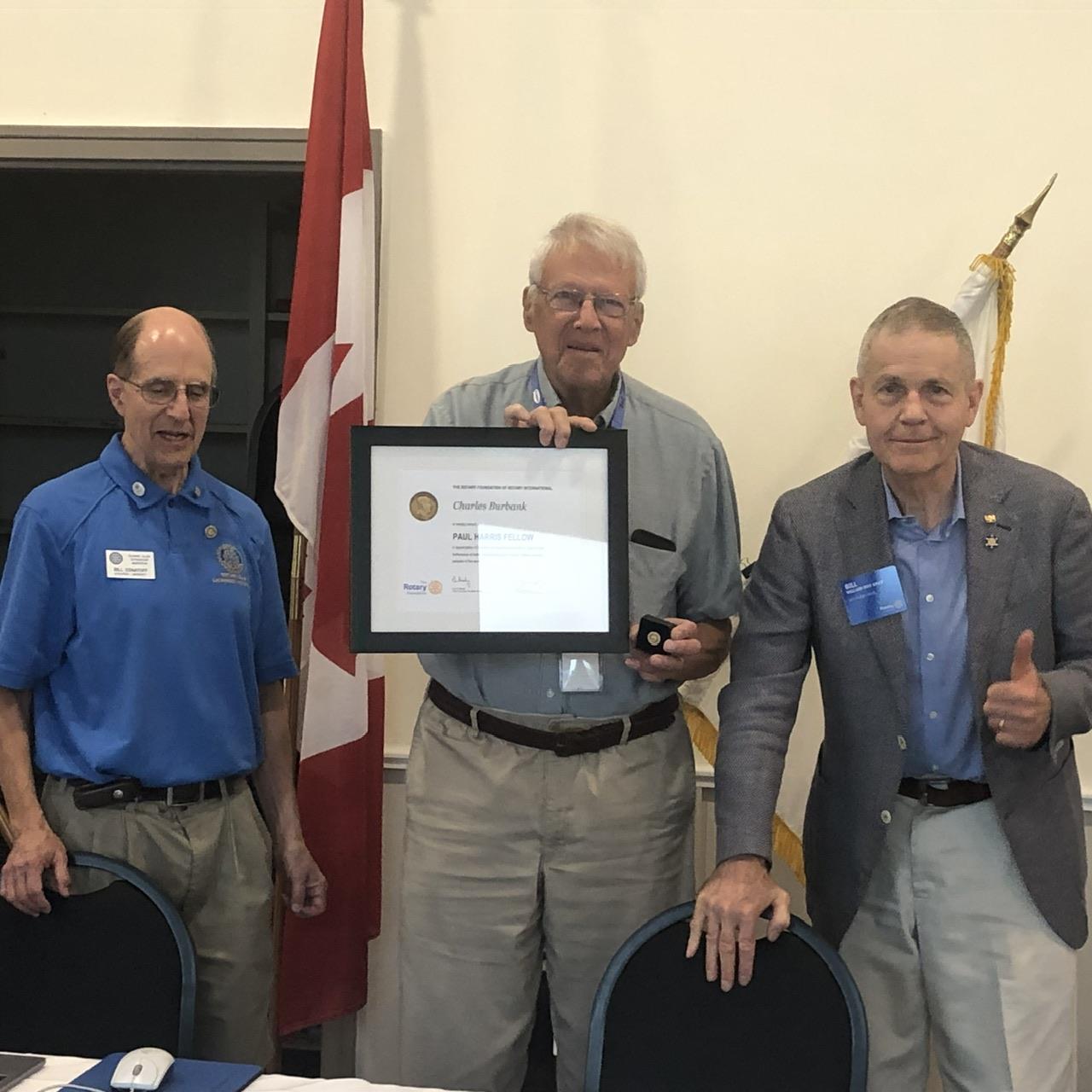
past speakers

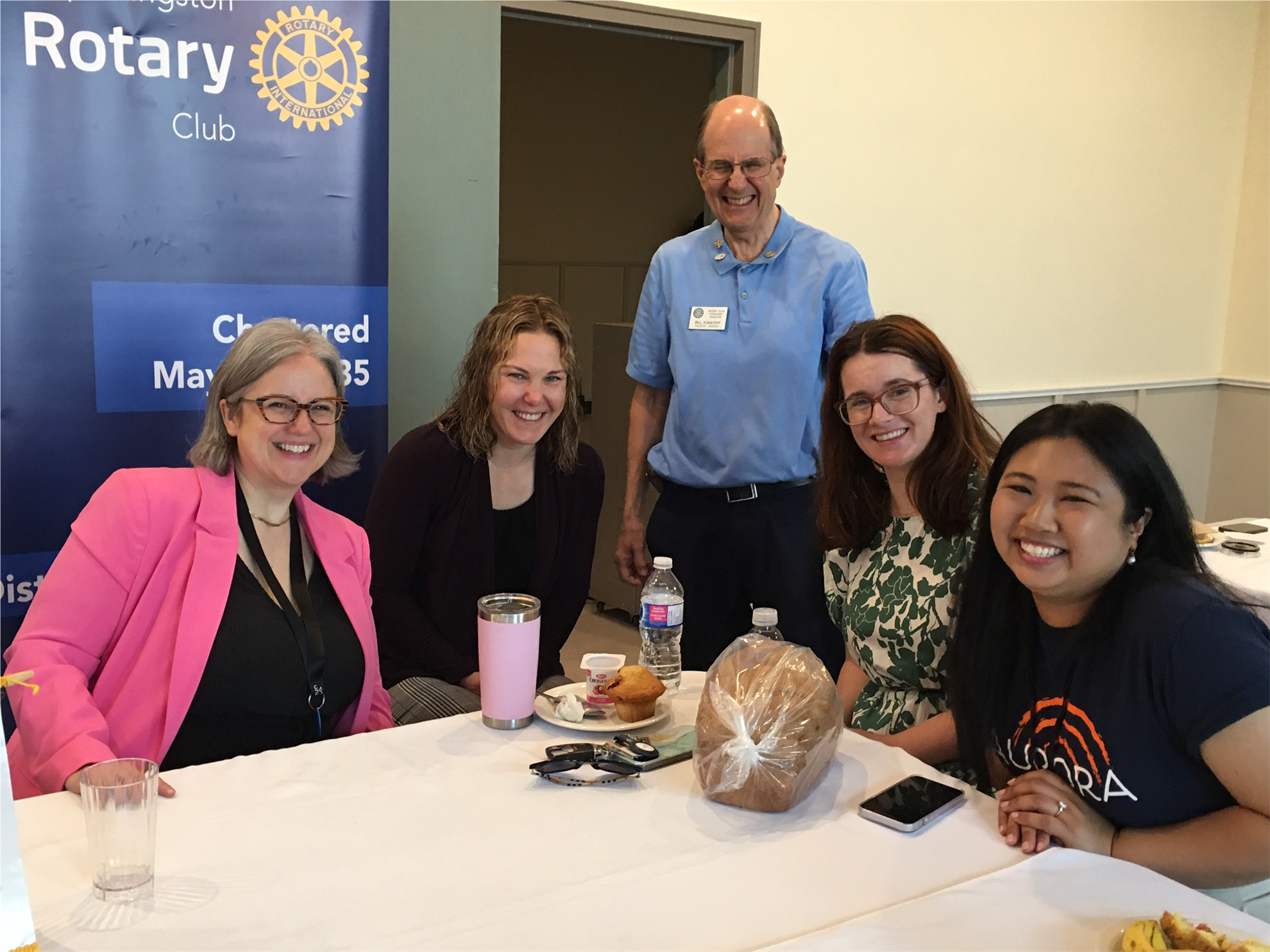
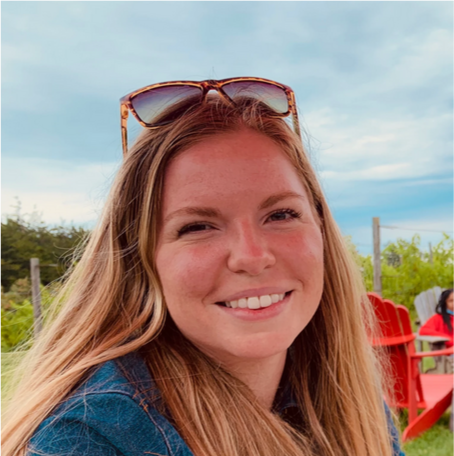
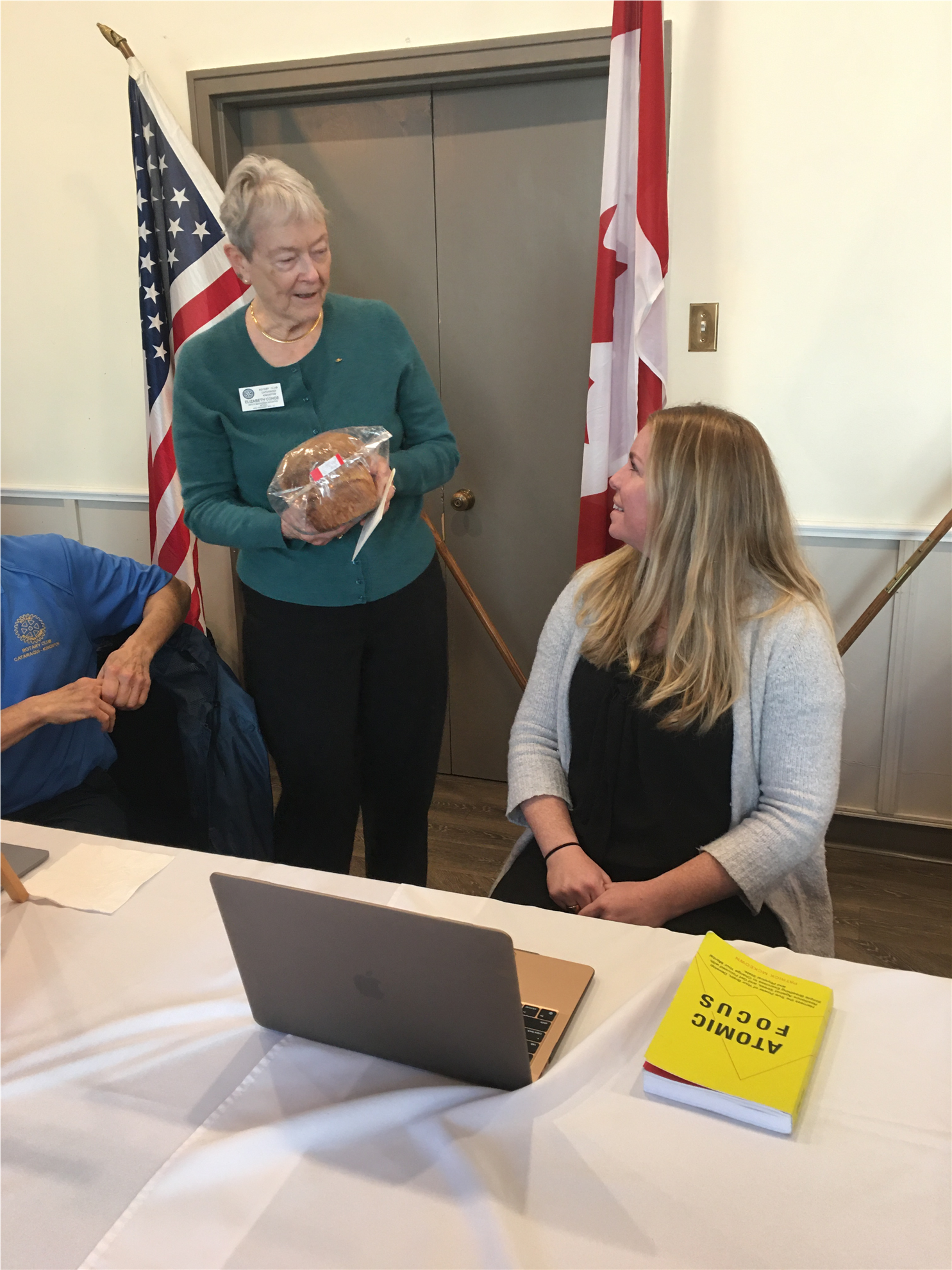
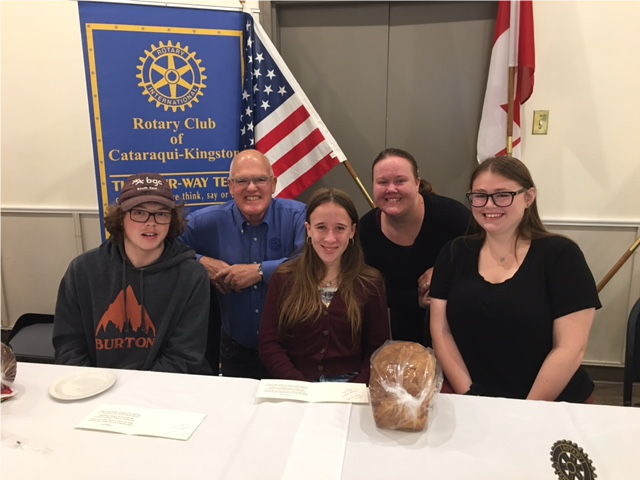
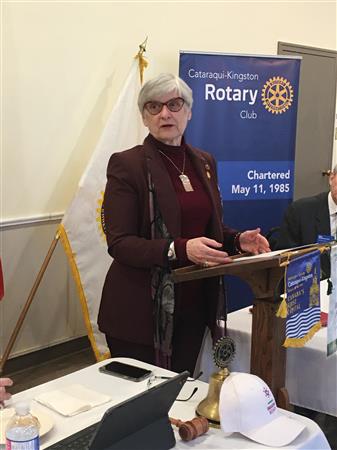
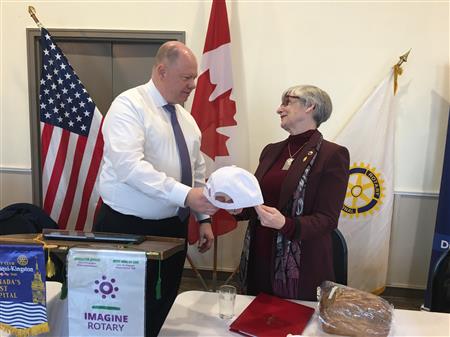
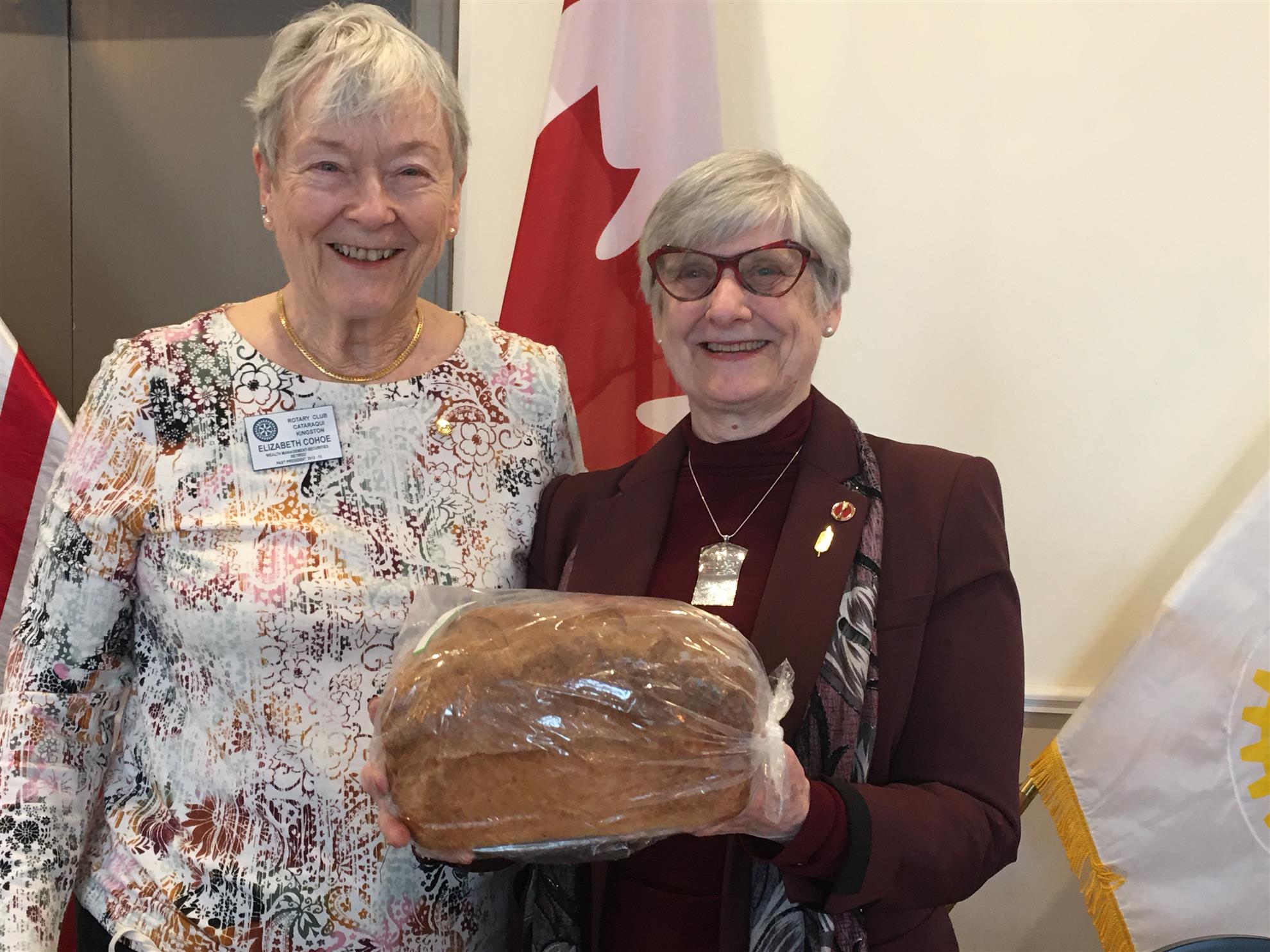
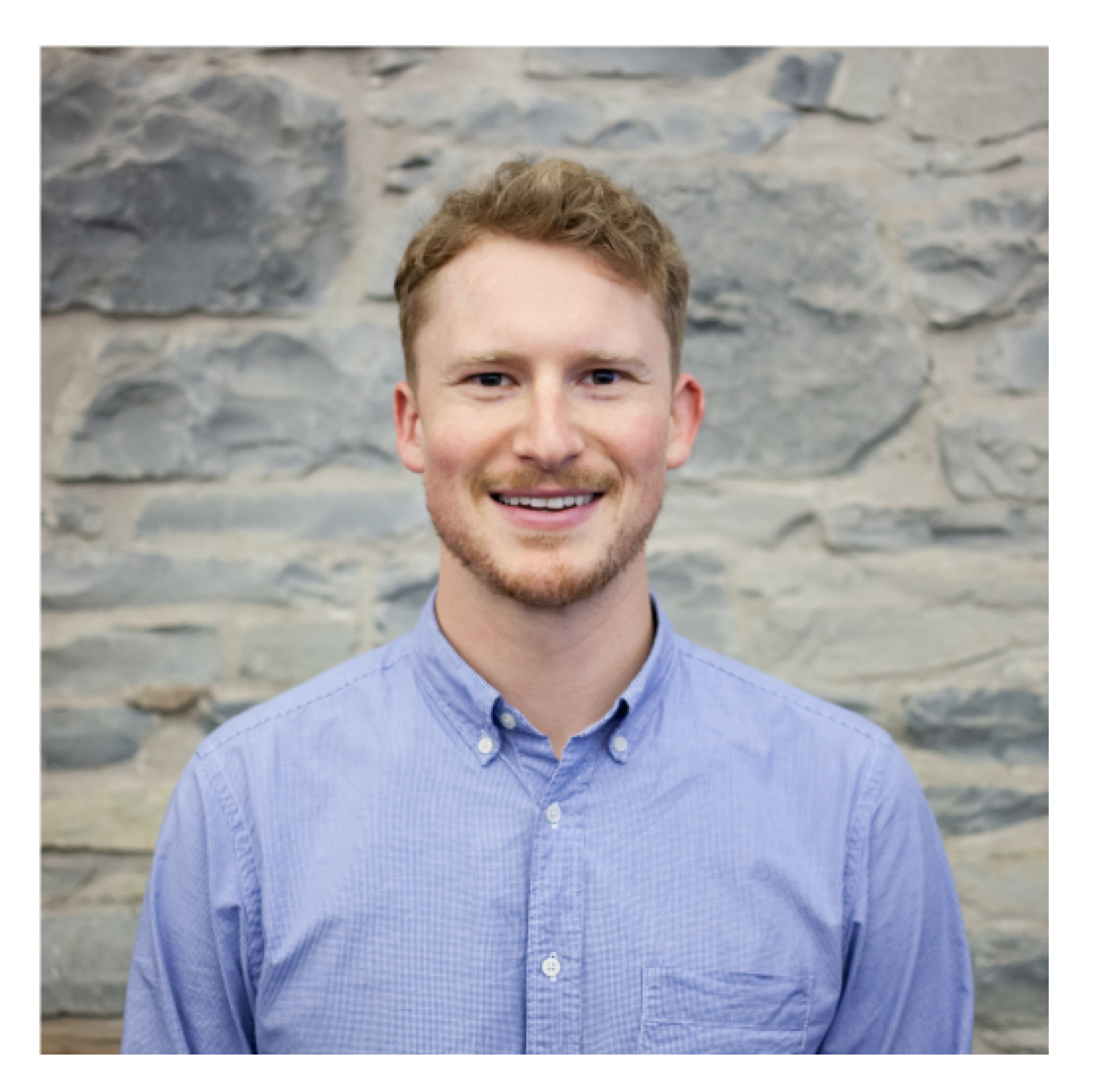
Last year we heard about the commitment of the City of Kingston to supporting climate action, greenhouse gas reductions and more sustainable city-wide initatives. Better Homes Kingston is an energy audit and retrofit guidance program designed to support homeowners with making changes to save money, reduce energy inefficiency and promote better technology. Soren Christianson, Program Director joined us to discuss the program and how the last year has gone for this initiative!
Soren's presentation can be seen at https://youtu.be/-9oA1lxL82U
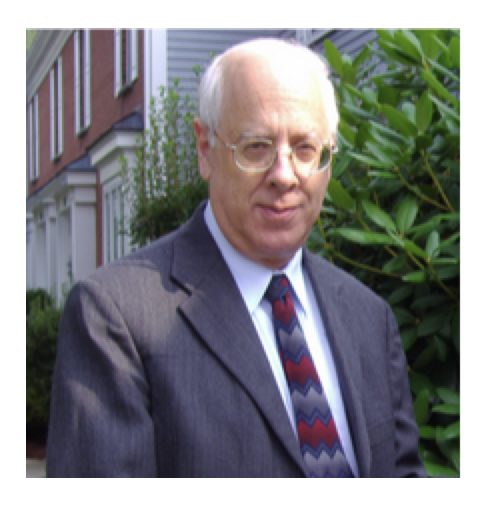
Steve Fine, founder and president of the Melanoma Education Foundation, attended colleges in the Boston area, receiving a doctorate in chemistry from Northeastern University. He then moved to Pennsylvania, completing a year of postdoctoral research at Lehigh University. After 5 years as Assistant Professor of Organic Chemistry at Lafayette College in Pennsylvania, he moved back to New England where he served in technical and management positions in high tech chemical companies.
Shortly after his son, Dan, died of melanoma in 1998 at the age of 26, he founded the non-profit Melanoma Education Foundation and, since 2000, has devoted full time to the Foundation. The primary activity of the Foundation has been educating high school and middle school wellness teachers about melanoma and providing them with free online lessons to educate their students about self-detecting melanoma while it is curable.
Did you know? - most people only use 25 to 50% of the sunscreen needed to protect themselves?
If you have a 100 SPF sunscreen, and use 25% of what's needed, what is the effective SPF?
If you guessed 25, you would be wrong - it's only SPF 3.1 !!
Steve's full presentation can be seen at https://youtu.be/oXqFooNRpDg
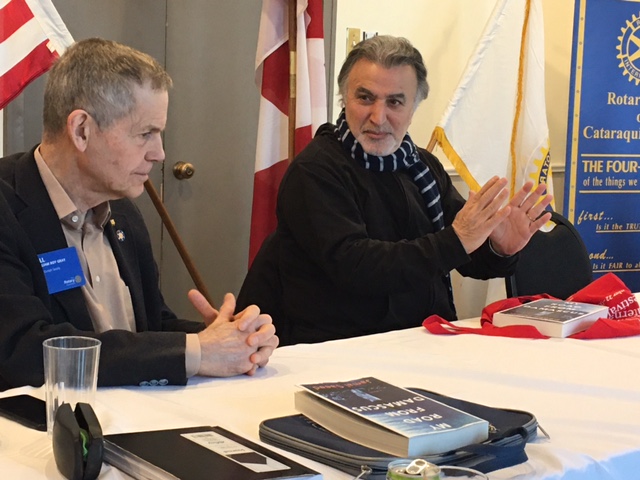
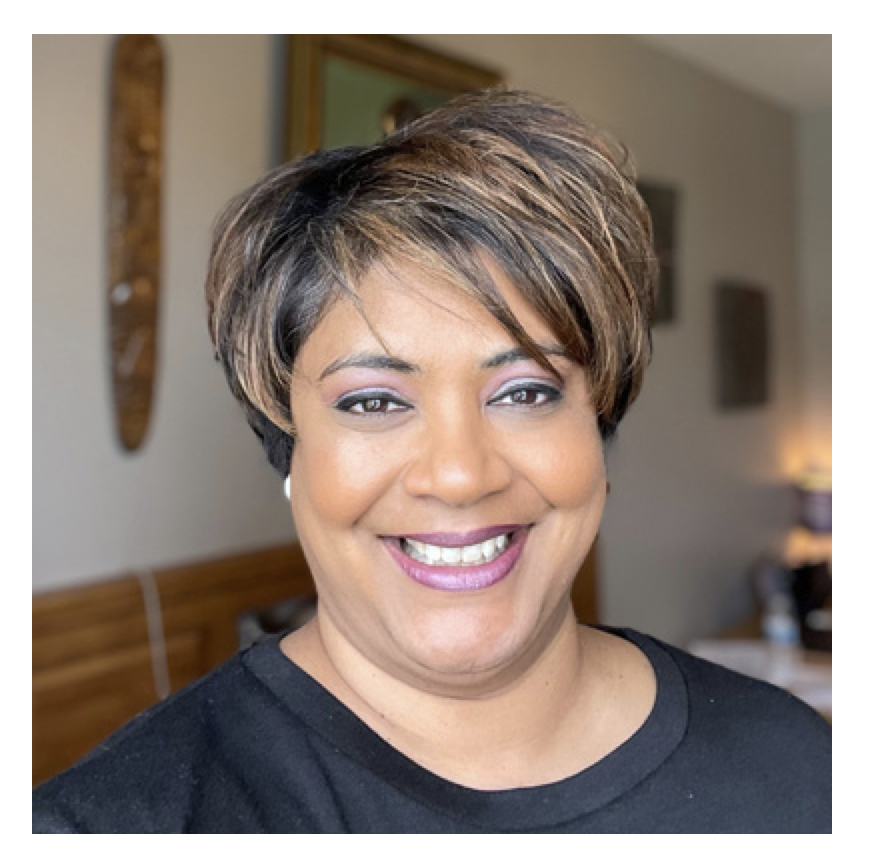
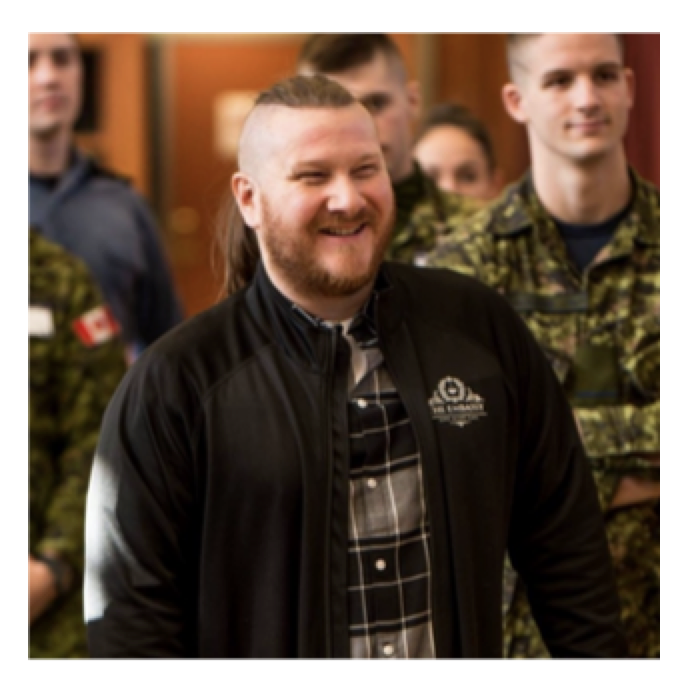

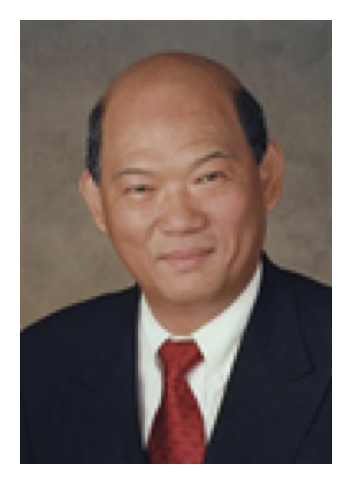
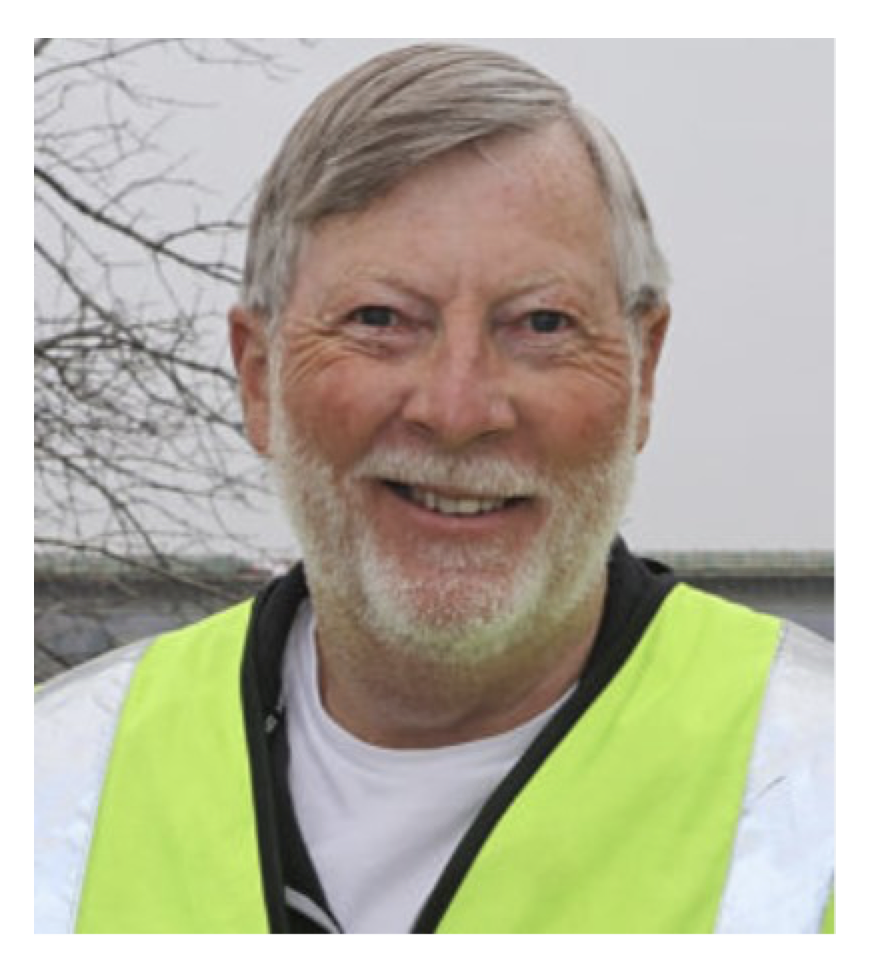
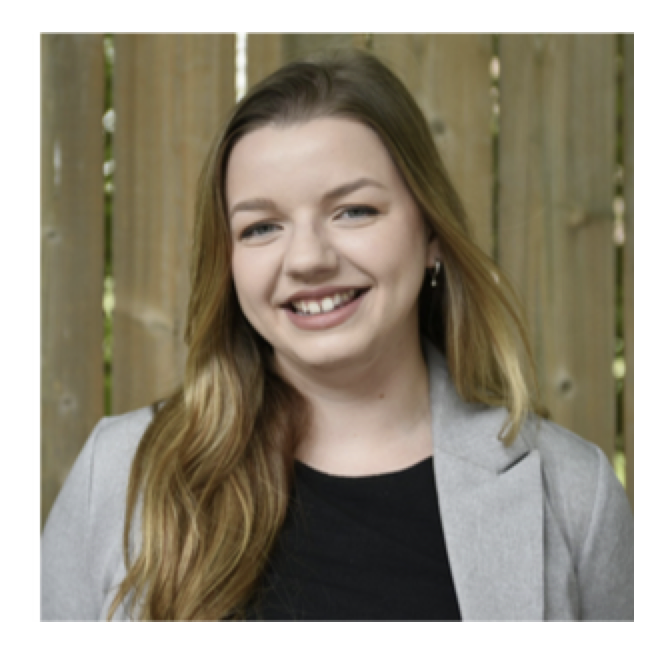
 John Farrow introduced today's speaker Jacquie Rushlow, co-owner of the Keep Refillery in Kingston. Jacquie and her husband opened their first store in Creemore in March 2020, then another location in Meaford, and then a location in Kingston December 2021. The concept is using your containers to refill your shampoo, hand soap, dish soap, laundry soap etc. from bulk containers and reducing plastic waste.
John Farrow introduced today's speaker Jacquie Rushlow, co-owner of the Keep Refillery in Kingston. Jacquie and her husband opened their first store in Creemore in March 2020, then another location in Meaford, and then a location in Kingston December 2021. The concept is using your containers to refill your shampoo, hand soap, dish soap, laundry soap etc. from bulk containers and reducing plastic waste.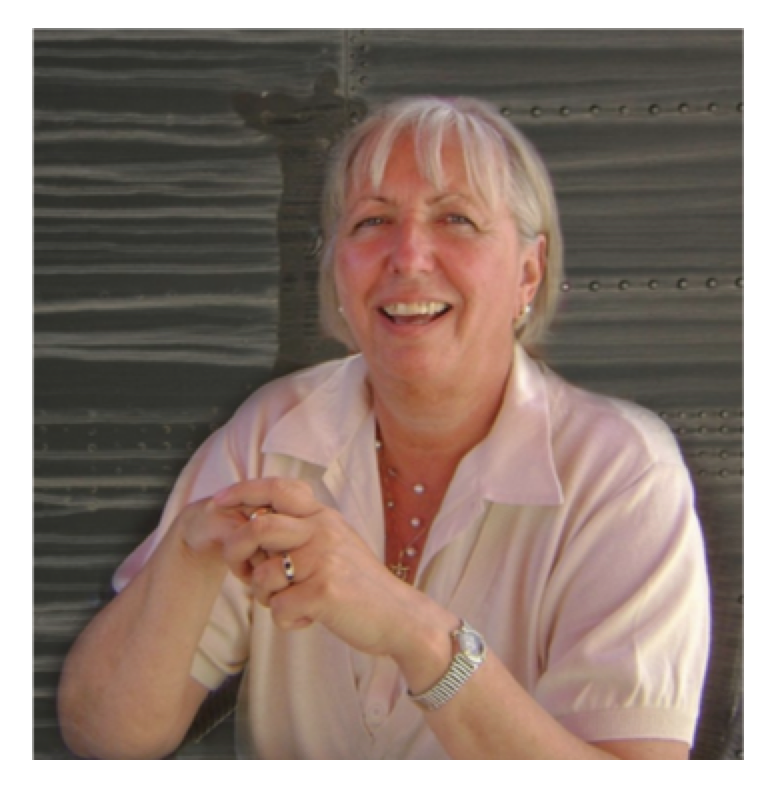
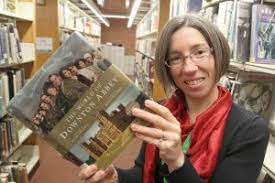
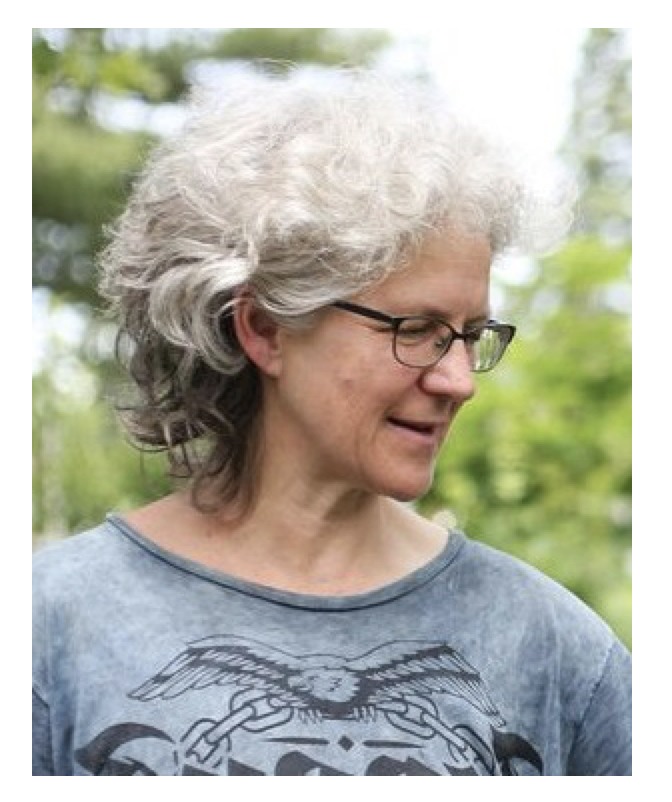

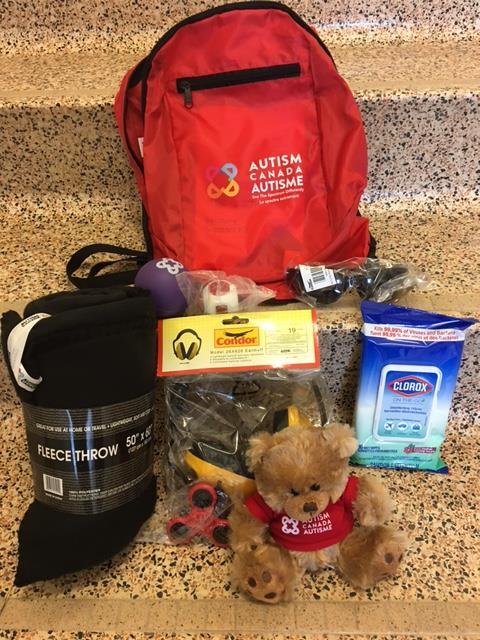
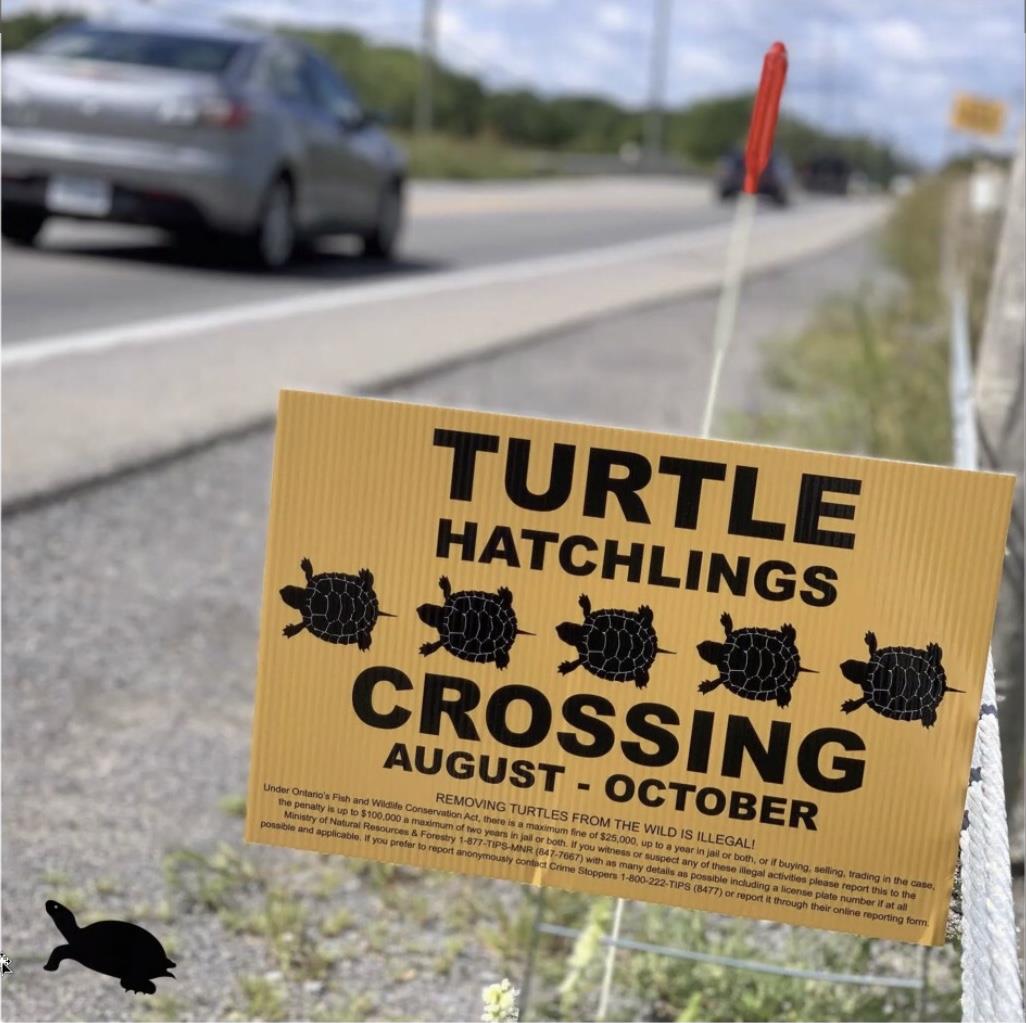
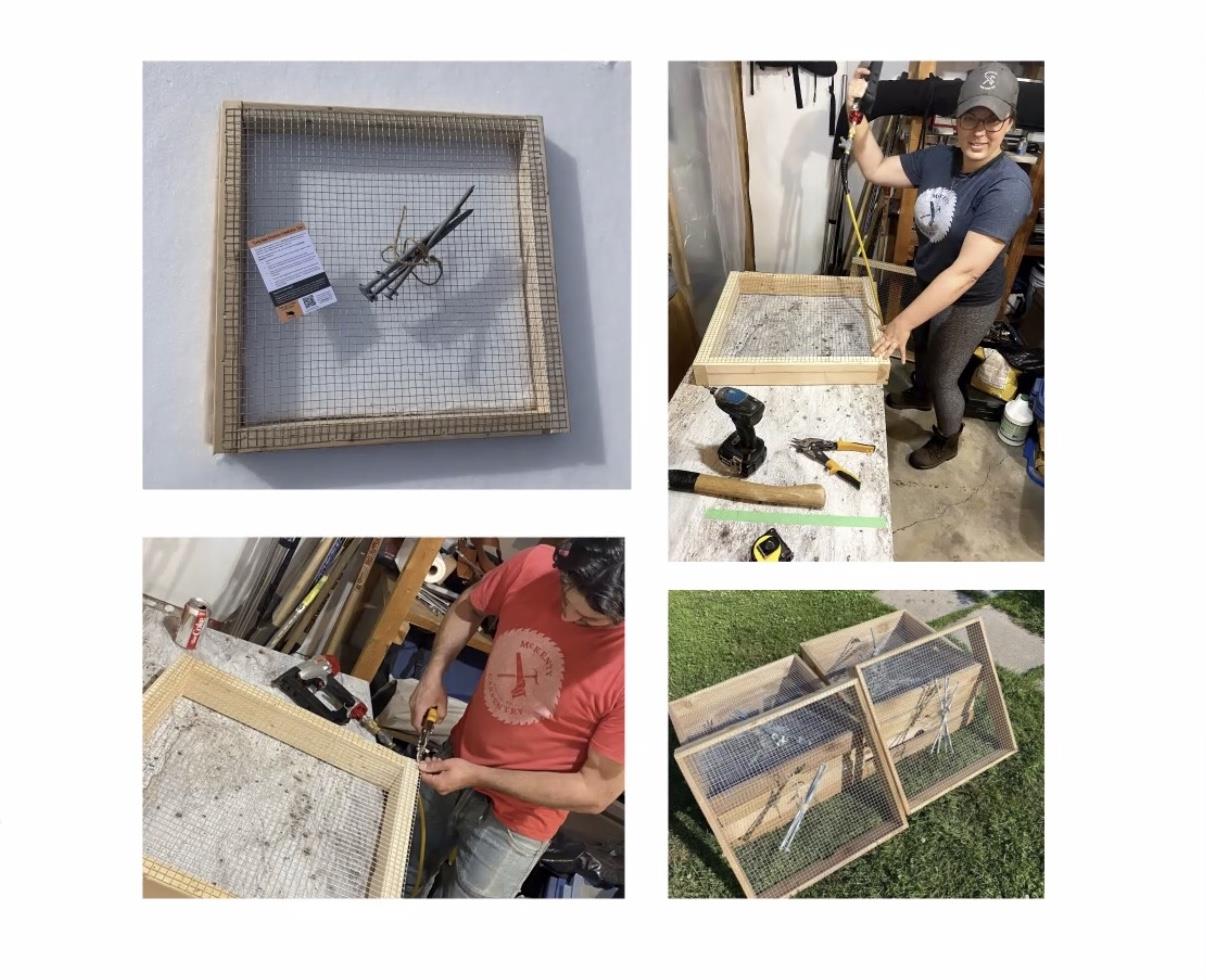
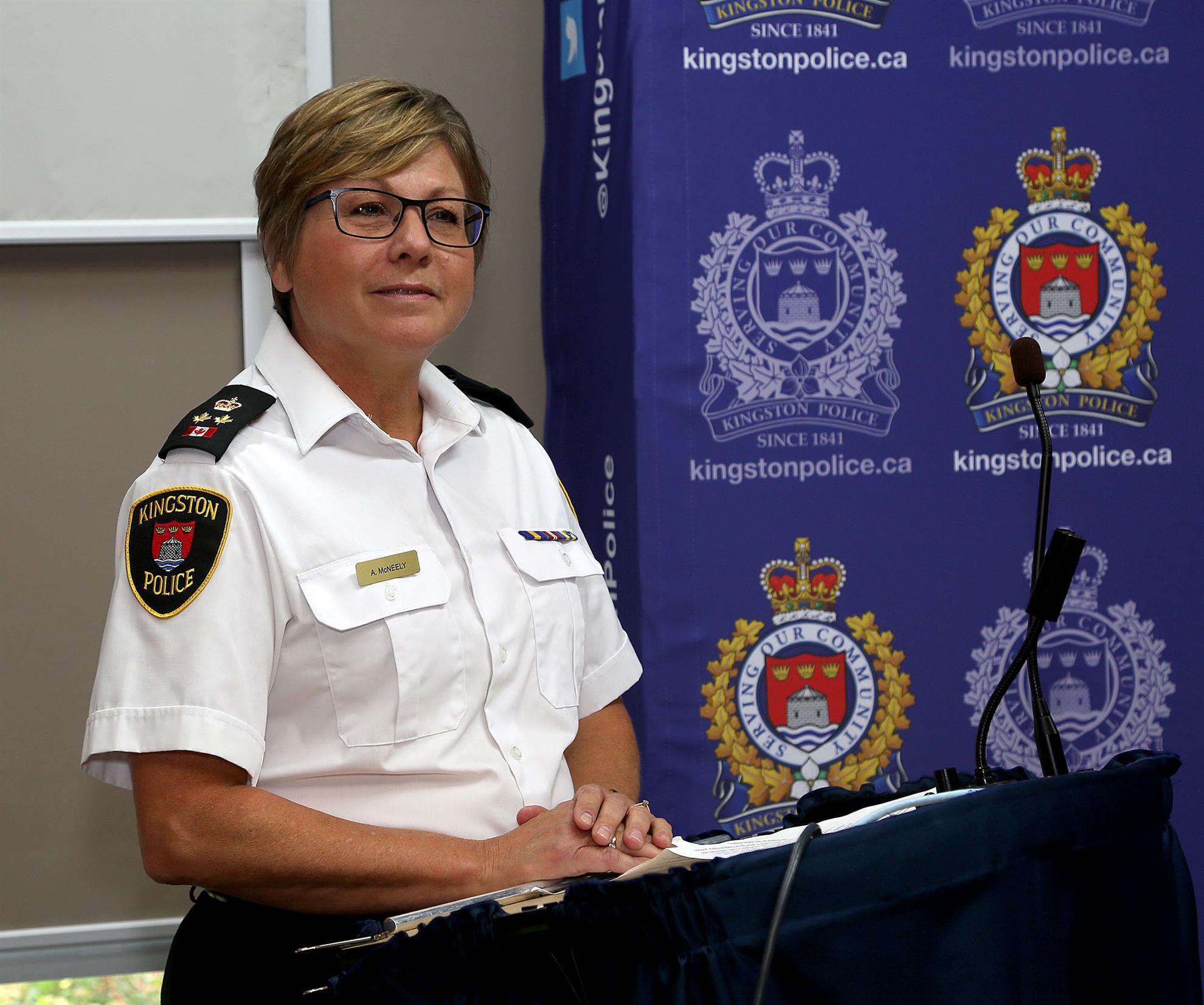
Police Chief Antje McNeely was introduced by John Farrow. John and President Ana mentioned how pleased they are to have Chief McNeely speaking at this time of International Woman’s Day with this year's theme being “Break the Bias”.
Antje McNeely was appointed Chief of our Police Force in late 2018. Her appointment as the 17th chief and the first female police chief of the 181 year old force continued her groundbreaking career within our police force. She has led in the first of many firsts within the police force.
Chief McNeely joined the police force in 1985 following completion of a Bachelor of Science degree. In 1961, the first woman was hired by the police force,staying for 3 years. In 1966 Linda Paul was an early hire. She emphasised to Chief McNeely “Do not change who you are”.
During her career, Antje McNeely established many firsts within the police force. In 1989, she was the first officer to go on maternity leave. With a young family, she faced many challenges with evening/weekend shifts. In 1992, Antje McNeely was promoted to Sergeant in charge of the sexual assault unit for 10 years. During this time she developed protocols for the working relationship between the police force and community providers.

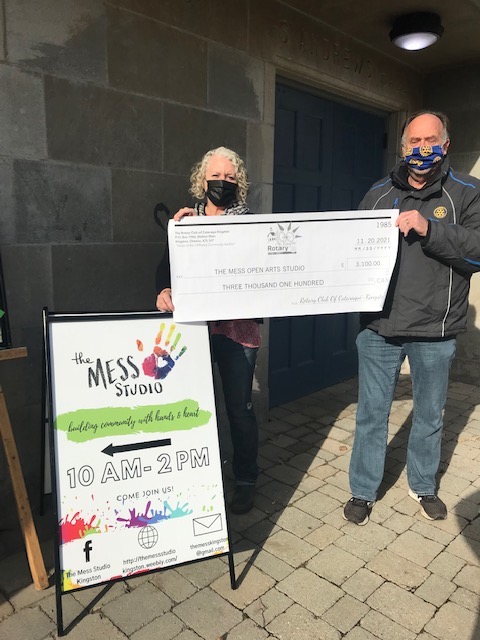
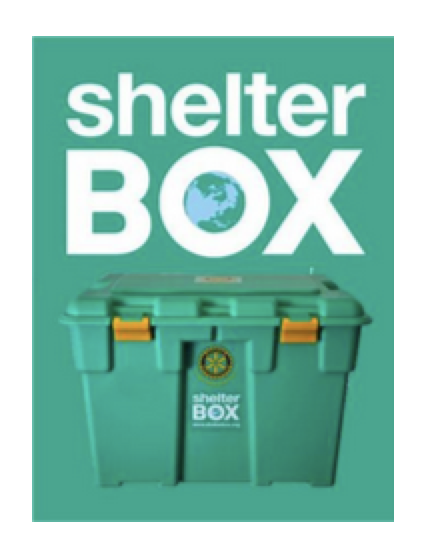
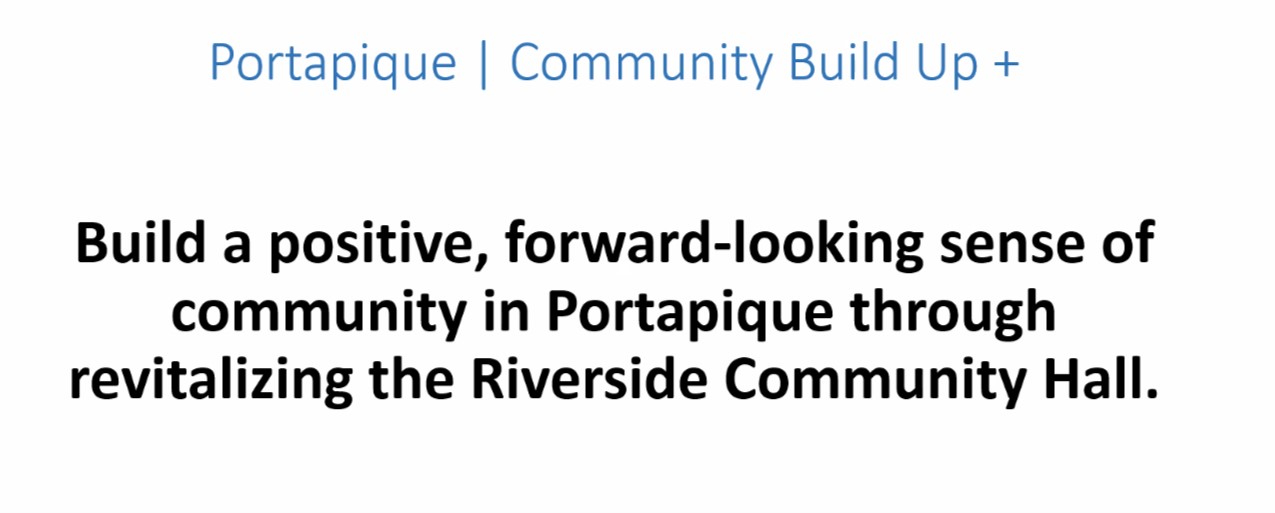
Robert Reid introduced today’s speaker, Alana Hirtle from the Truro Nova Scotia Rotary Club. After hearing the Club’s story on the news, Alana was asked to speak to the National Committee, then to the whole club. She was here to tell us about the Portapique Buildup Project. This project is to revitalize the Riverside Community Hall, in response to the shooting tragedy that occurred in Portapique almost two years ago.
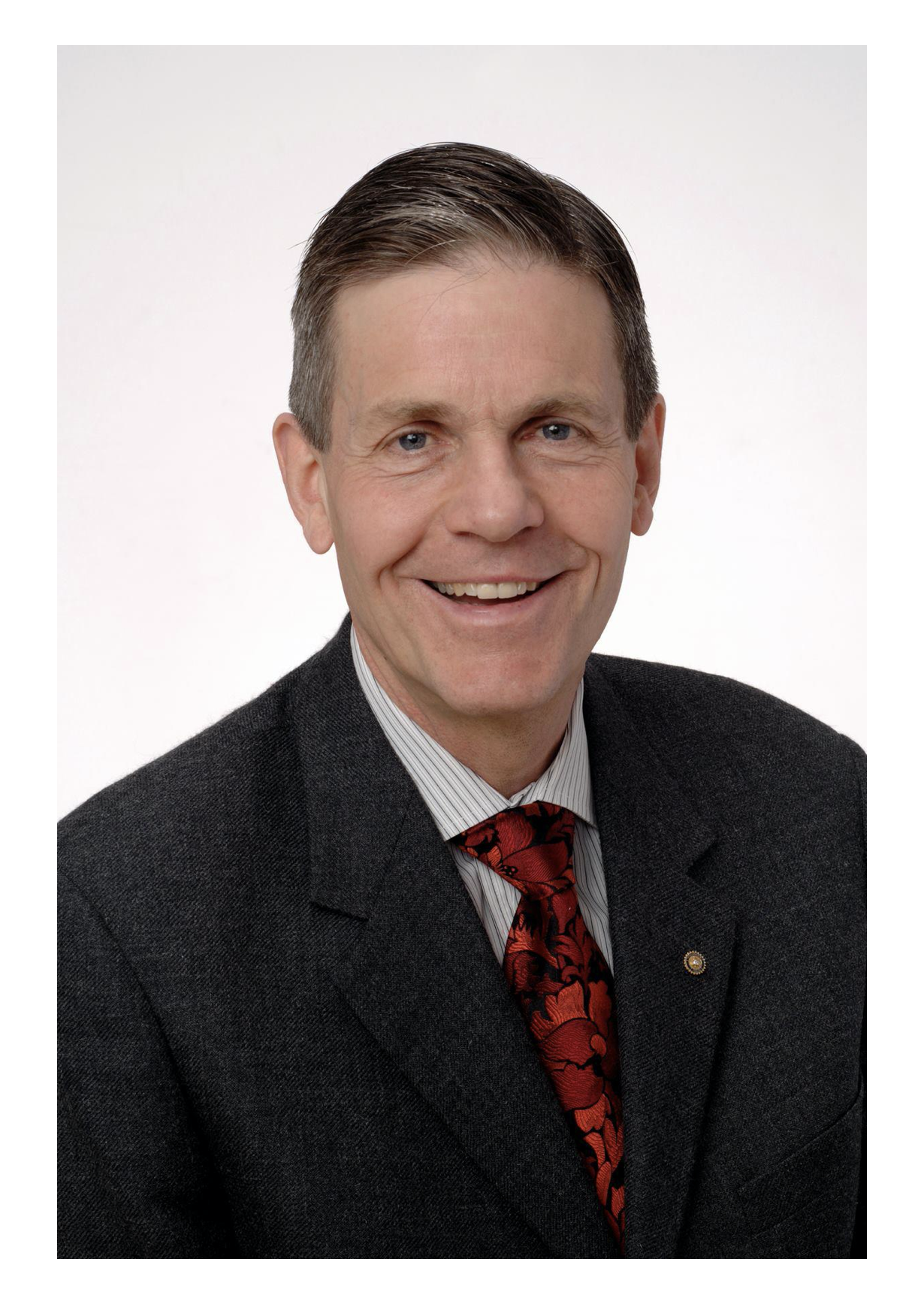
Speakers – February 8, 2022
Rotarians Bill Gray and Bill Egnatoff
International Service Projects:
CKRotary at Home Around the World
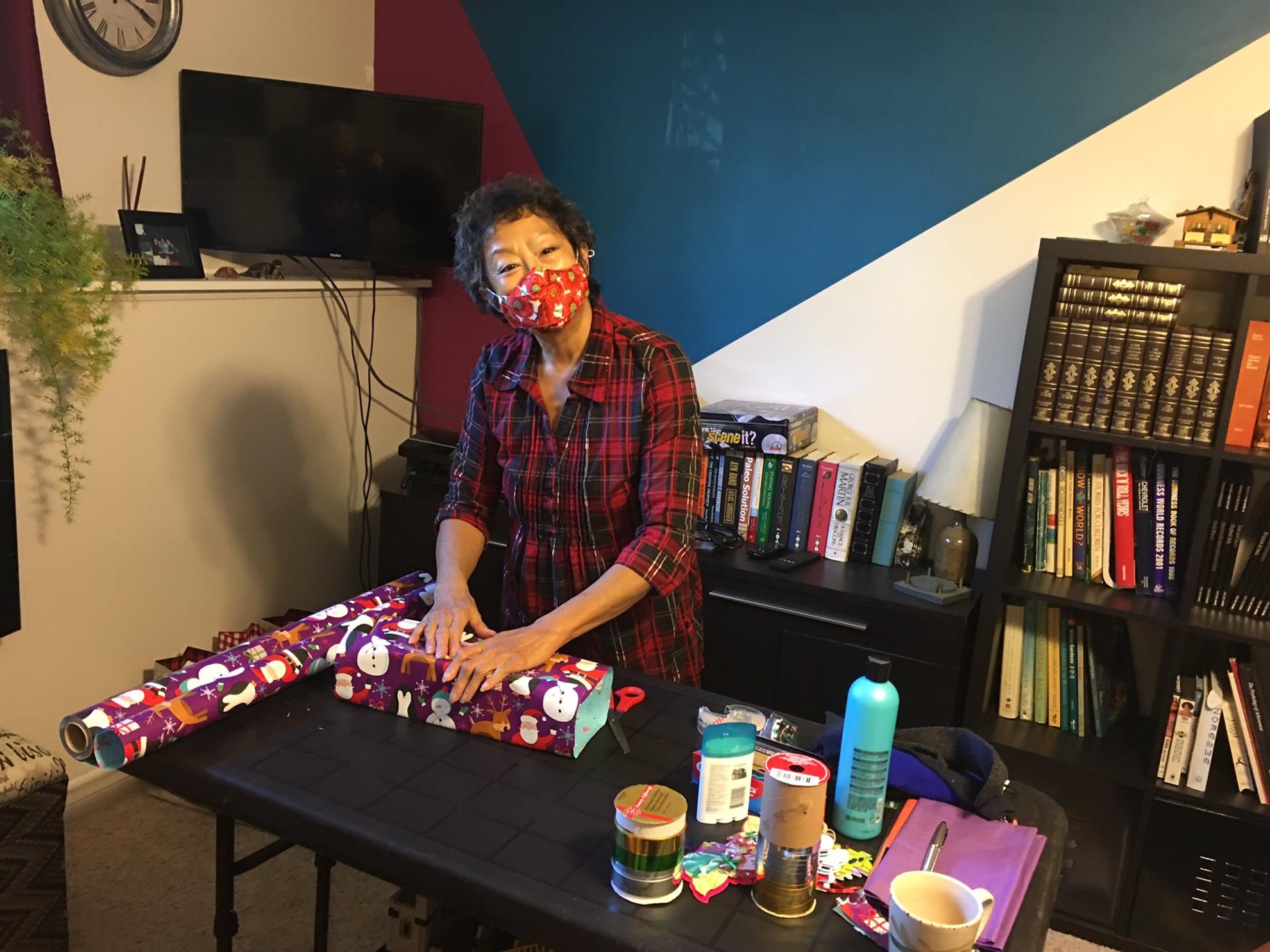
My parents immigrated to Canada in 1953, and I was born in Toronto 6 months later. Hard work and saving every penny made them successful with a restaurant. Even if business was slow sometimes, they could at least feed the family. We moved to Kingston when I was a year old. I still remember the signs we had in the restaurant window. Fish & chips 85 cents, hamburgers were 25 cents.
I attended KCVI and LCVI, I was not academic, I found I was more creative/artistic. I graduated Sheridan College in fashion design, pattern drafting, couture sewing.
In the late 70's, I moved to Edmonton. Knowing it would take time to find work in my field, I immediately found work as a cocktail waitress in a Disco and Cowboy Cabaret bar. Everything was booming in Alberta, so four months later became Head of Wardrobe of the Alberta Ballet Company. That was a huge learning experience. I went on to costuming for the Citadel theater, Banff school of fine arts and numerous costuming and touring contracts for years. Even, unexpectedly, I held musical theater in prison, in Lethbridge Alberta and one in the Yellowknife prison. My parents were aging and getting ill, so I moved back to Ontario in 1989. Unfortunately there was not a lot of work in my field during the Conservative government.


Tom Zsolnay, a Rotarian since 2004, a member of our club for a year, and President and CEO of University Hospitals of Kingston Foundation, offered an overview of The Rotary Foundation. In his talk you will find answers to these questions:
- What is The Rotary Foundation (TRF)?
- What is the purpose of each of its major components--Polio Plus, the World Fund, and the Endowment Fund?
- What happens to contributions to each of those funds? What work do the support in the Seven Areas of Focus?
- Why does TRF have such a high rating as a charitable organization?
- How can individual Rotarians and clubs contribute to TRF?
- What is the Every Rotarian Every Year campaign working? How is our club doing in its contributions to TRF?
- How are contributions multiplied by matching funds?
- What is Paul Harris Fellow recognition? Who can be recognized in this way and for what?
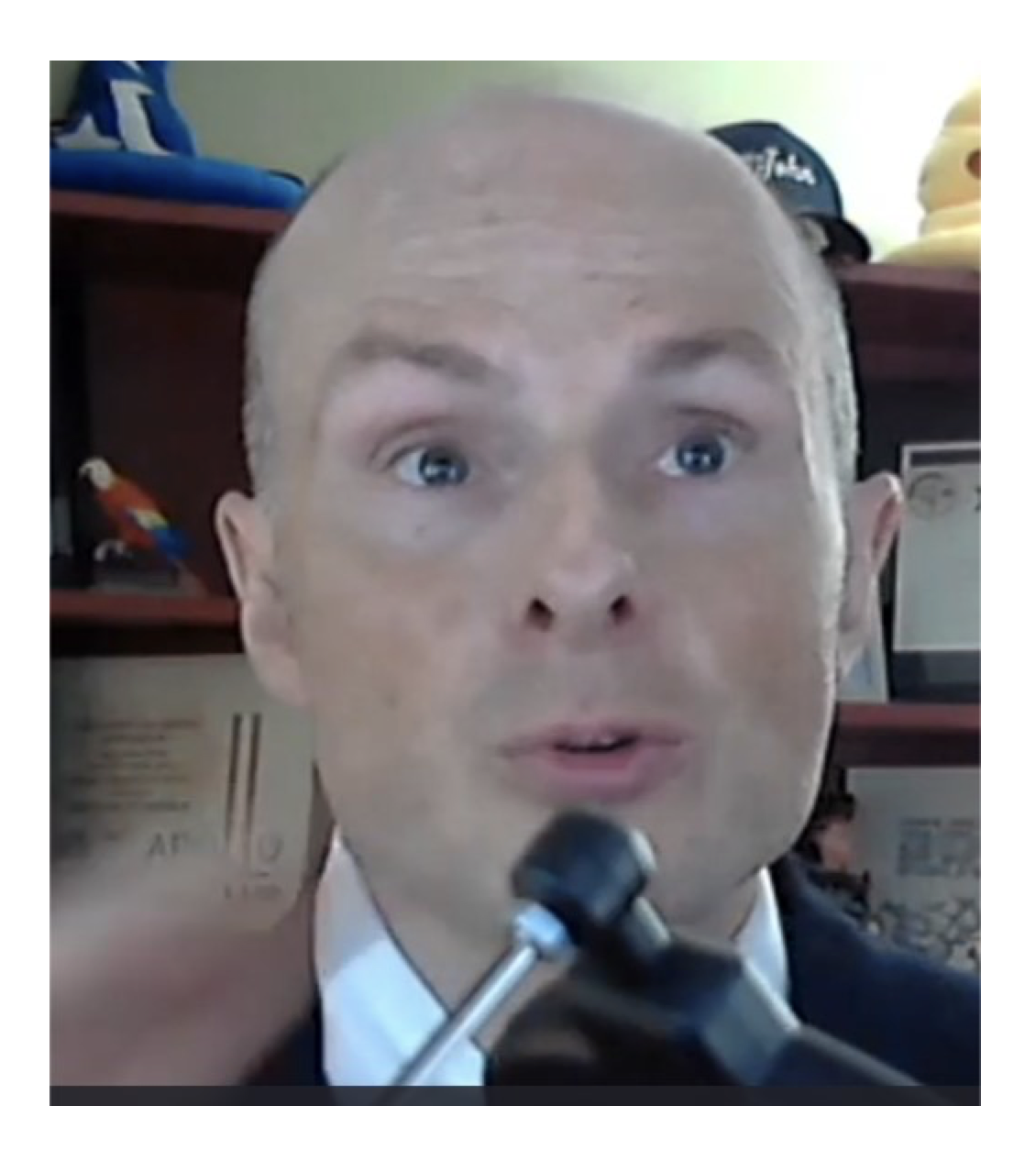
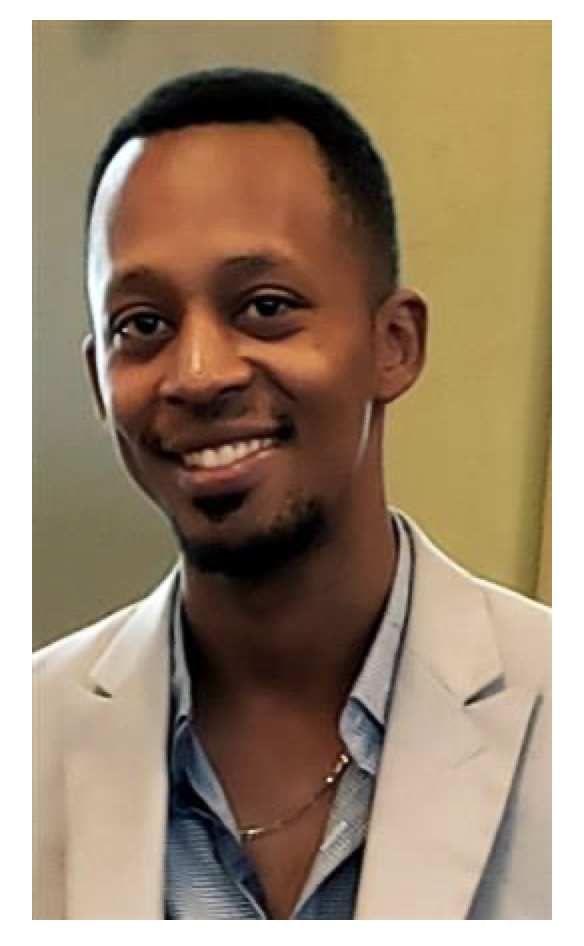

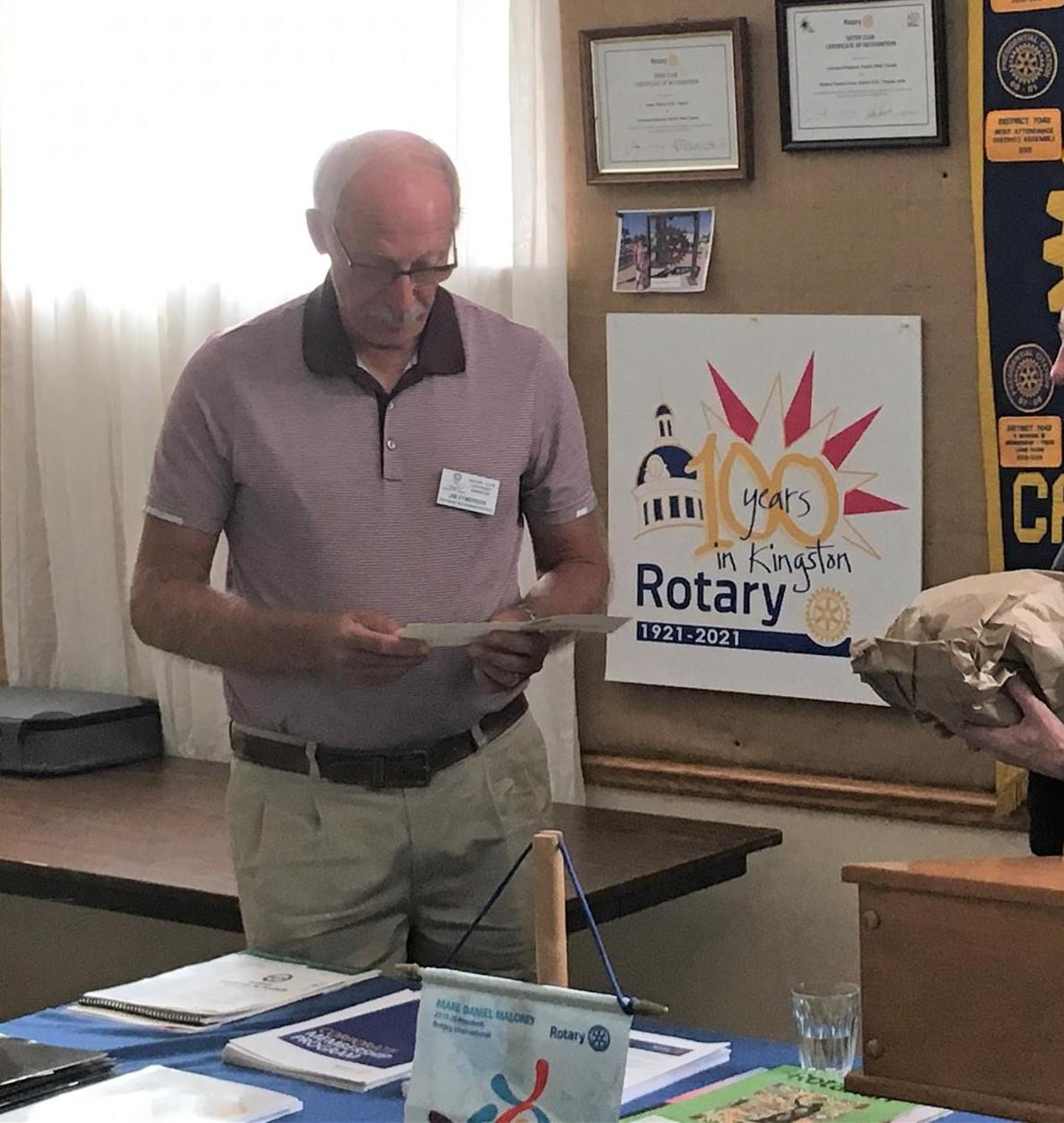

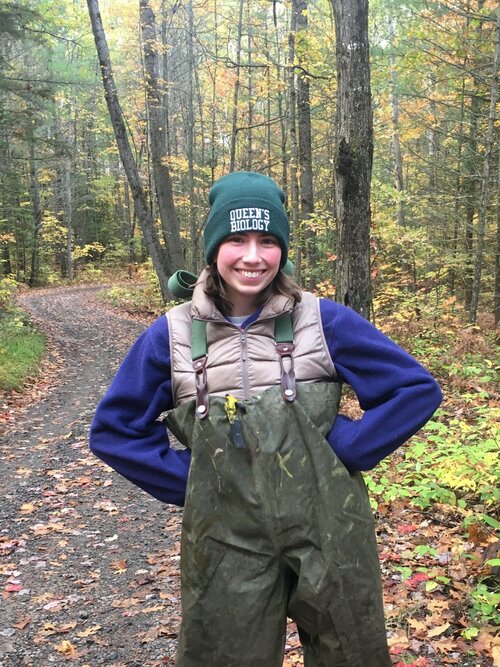

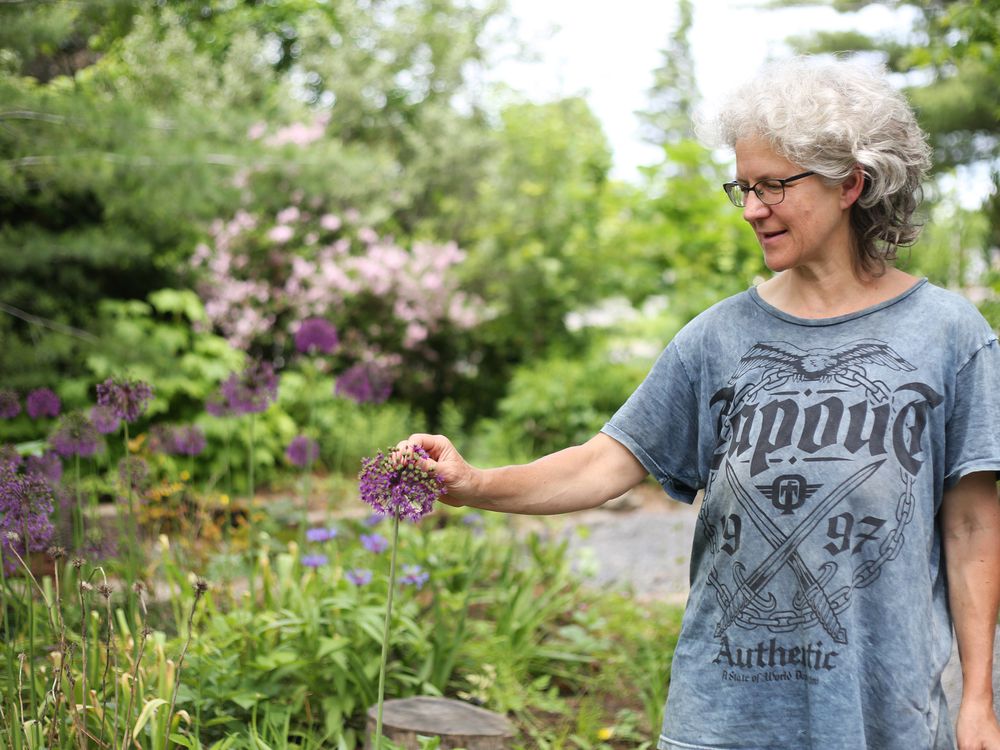
John introduced our guest speaker Joyce Hostyn to speak about Little Forests Kingston. Joyce presented a very informative graphic presentation.
Joyce wants to restore relationships with the land. There is a biodiversity crisis.
Joyce plans to build as many little forests around Kingston as possible.
Only 25% of forests remain around Kingston, and Queens is starting a project about measuring climate resilience. We have lost 2.9 billion birds since 1970. 900 saplings have been planted on Highway 15 as part of the program. This program also ultimately helps with climate change.
This is worldwide, there are over 100 little forests planted in the Netherlands. Each one is adopted by a school.
The Little Forest movement is not just about planting trees; it is about planting forest ecosystems. A little forest can be planted in the area of 6 parking spaces.
Joyce has started a Go Fund Me page for donations.
Martin mentioned an interesting book called The Hidden Life of Trees that he recommends.
Heather thanked Joyce and wished we would all be part of this. Joyce mentioned they have a newsletter you can sign up for.
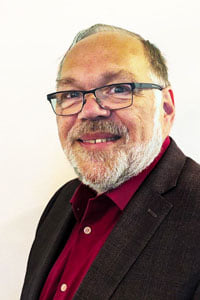


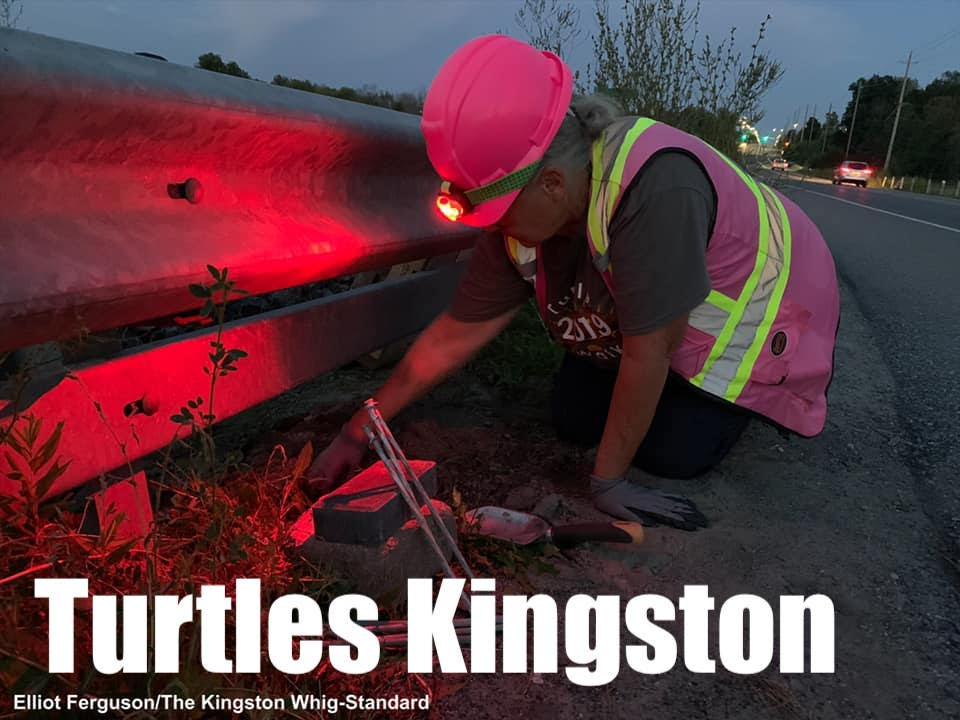
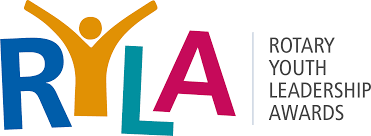


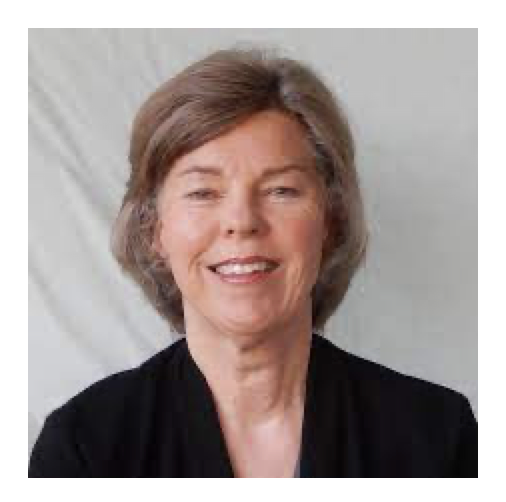
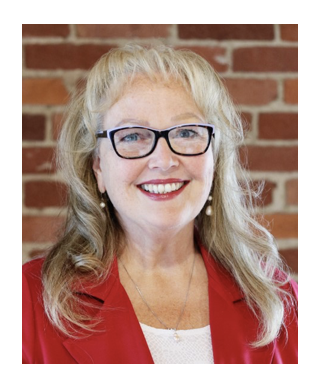
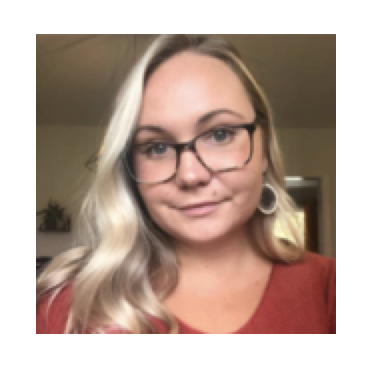
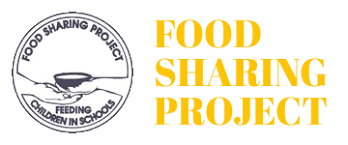
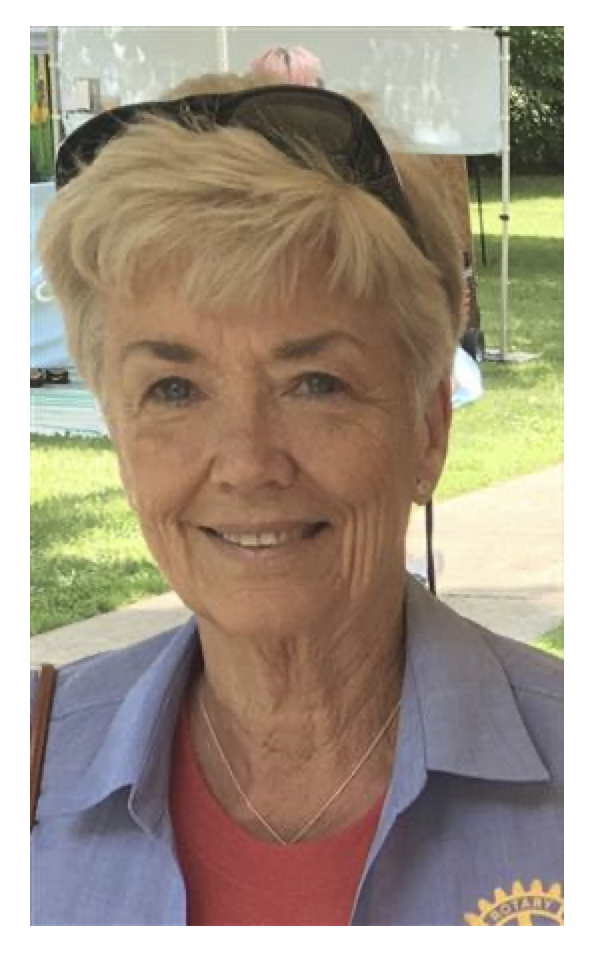 Heather was introduced this morning by Michelle Chatten Fiedorec. Michelle prefaced her introduction of Heather with a history of Rotary Fireside Chats/Classification talks. This “Getting to know You” event was conducted by Michelle and Heather in an interview format.
Heather was introduced this morning by Michelle Chatten Fiedorec. Michelle prefaced her introduction of Heather with a history of Rotary Fireside Chats/Classification talks. This “Getting to know You” event was conducted by Michelle and Heather in an interview format.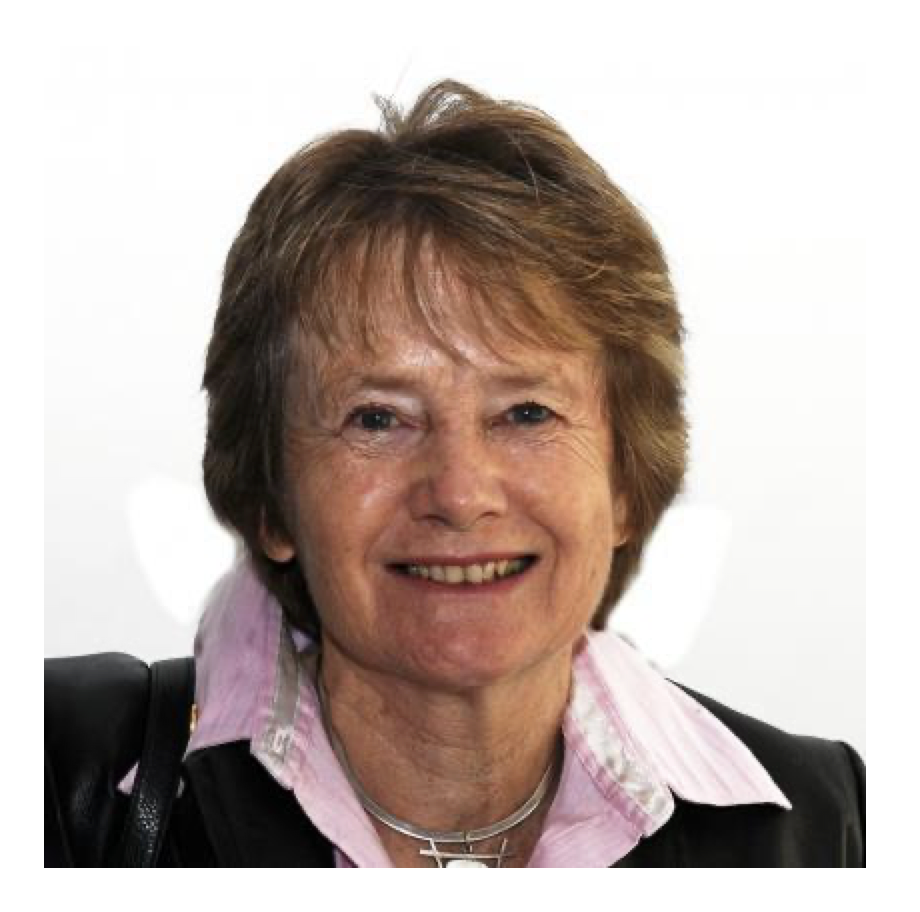 John Farrow introduced our speaker, Pat Armstrong, who has been a Rotarian for 15 years. She is also a member of the Environmental Sustainability Rotary Action Group. (ESRAG). Pat works as an educator for sustainability. She has a BSci (Hons.), DipEd. and is currently completing a doctorate on adolescent leadership for sustainability at RMIT University. Pat has worked in a number of roles (mostly in the areas of waste and resource recovery, climate change and biodiversity), including management, strategic planning, grant writing, training, evaluation and publication.
John Farrow introduced our speaker, Pat Armstrong, who has been a Rotarian for 15 years. She is also a member of the Environmental Sustainability Rotary Action Group. (ESRAG). Pat works as an educator for sustainability. She has a BSci (Hons.), DipEd. and is currently completing a doctorate on adolescent leadership for sustainability at RMIT University. Pat has worked in a number of roles (mostly in the areas of waste and resource recovery, climate change and biodiversity), including management, strategic planning, grant writing, training, evaluation and publication.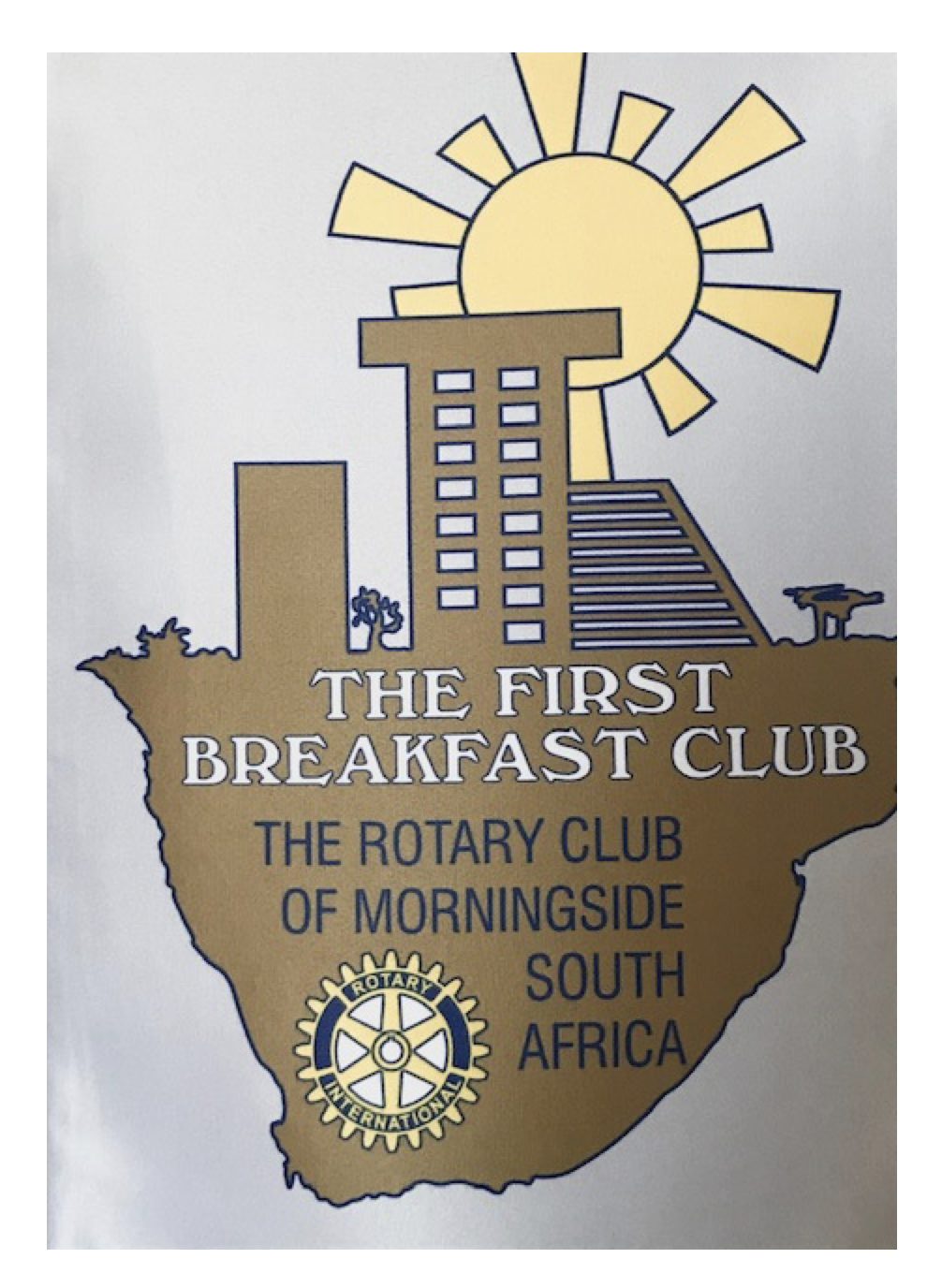 This morning we had a joint meeting between our club and the Morningside Rotary Club of Johannesburg, South Africa.
This morning we had a joint meeting between our club and the Morningside Rotary Club of Johannesburg, South Africa.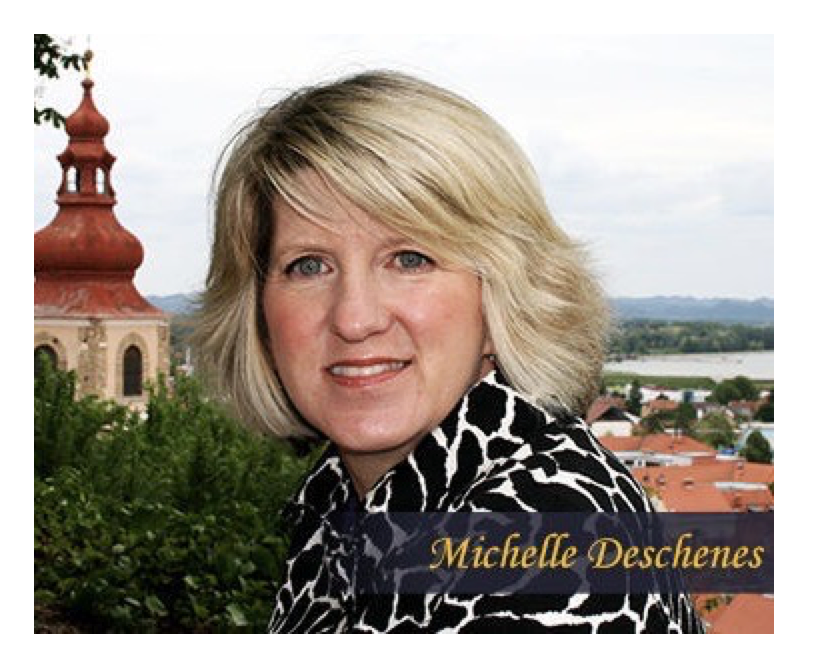 John Farrow introduced Michelle this morning. She has lived all across Canada, worked in hospitals and with the RCMP, now runs her own business “Ace Nutrition”.
John Farrow introduced Michelle this morning. She has lived all across Canada, worked in hospitals and with the RCMP, now runs her own business “Ace Nutrition”.- Michelle has a connection to Loving Spoonful – gives 3% of her daily revenue to them
- Her goal is to help prevent health issues and getting Kingston Healthy
- Michelle's website is http://acenutrition.ca/
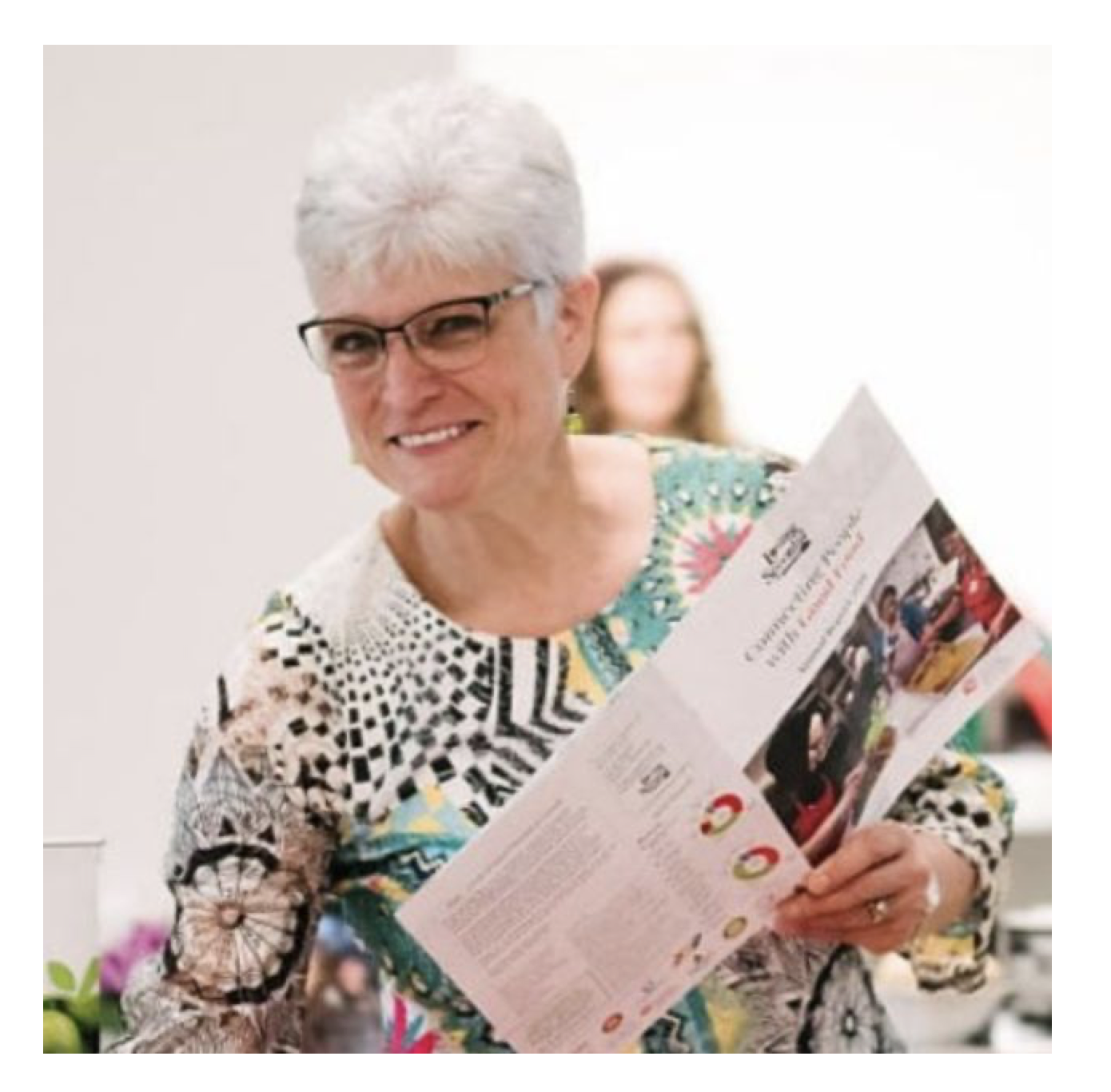 Sutherland introduced our speaker Mara Shaw, who is the Executive Director of the National Farmers Union of Canada. Before her presentation Mara gave us an update on her daughter Karena whom we all know. She is attending Carleton University now, and is Co-President of their Rotaract Club.
Sutherland introduced our speaker Mara Shaw, who is the Executive Director of the National Farmers Union of Canada. Before her presentation Mara gave us an update on her daughter Karena whom we all know. She is attending Carleton University now, and is Co-President of their Rotaract Club.- The National Farmers Union is not really a union as we know it, but a common voice for policy development. For example, it was this group that influenced the decision to keep bovine growth hormone out of Canadian milk.
- Our food system is fragile, and during Covid 19, farmers have been adapting. Consumers are preferring local sources and farmers’ markets are important for this.At this time, may have turned to online sales.
- The NFU is concerned about the issue of migrant workers.
- The NFU is committed to combat racism, they have called for universal child care and pharmacare, they have stood with farmers in India, and are working on climate solutions.
- Their website is www.NFU.ca.

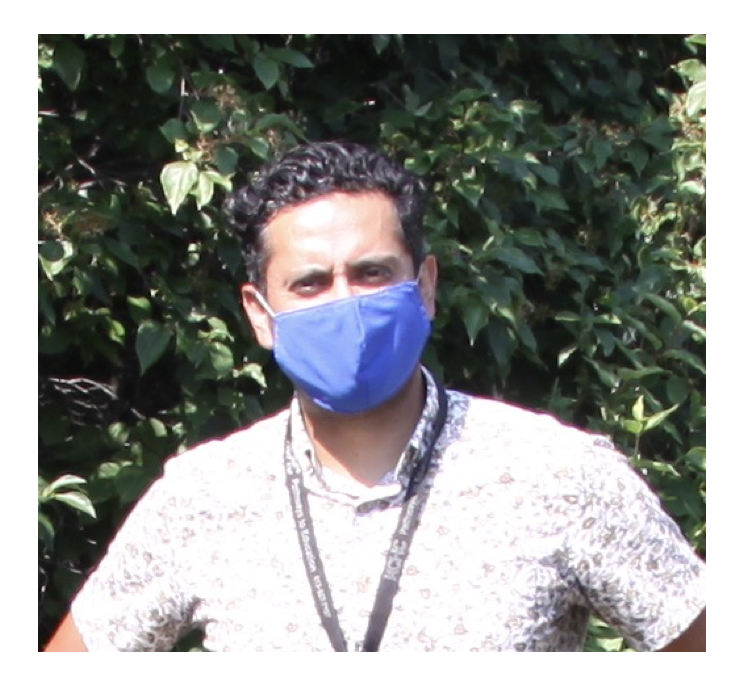
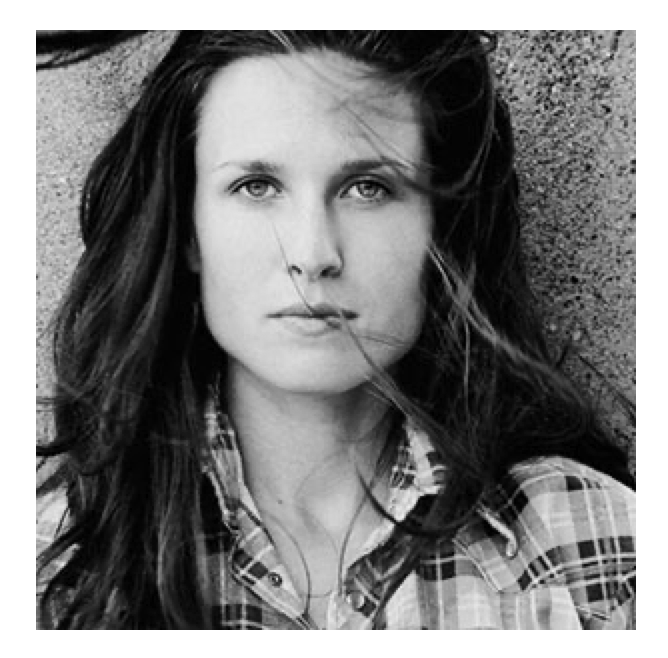
 John Farrow introduced Shawn Seargeant, Director of Operations for Lionhearts, an organization that has been on front lines and front pages for feeding people during COVID-19, including recently established warming hub at Stages, now operating 7 days a week.
John Farrow introduced Shawn Seargeant, Director of Operations for Lionhearts, an organization that has been on front lines and front pages for feeding people during COVID-19, including recently established warming hub at Stages, now operating 7 days a week.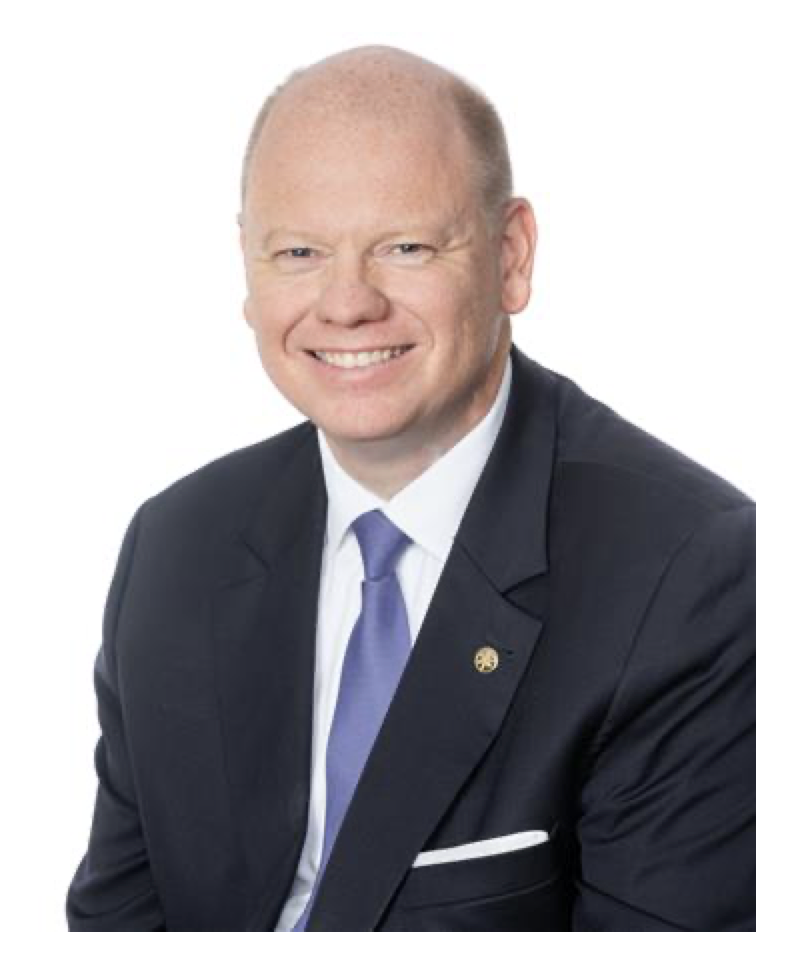 John Farrow introduced our speaker Sean Goodall who gave his classification talk . . .
John Farrow introduced our speaker Sean Goodall who gave his classification talk . . .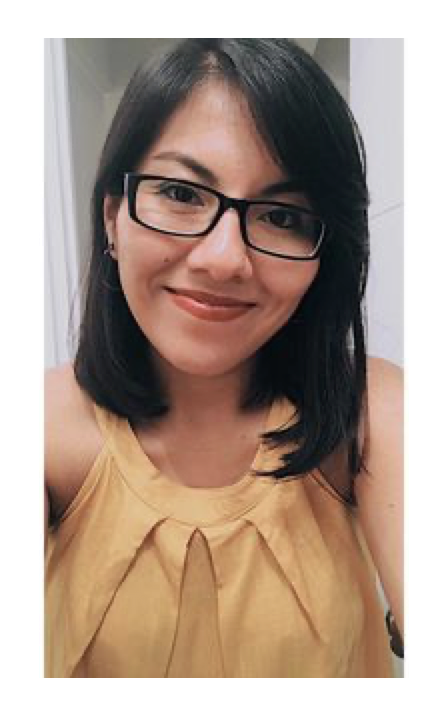
Gaby spoke about her life since her Rotary Youth Exchange experience with our club, which took place during 2011 – 2012. Returning to Peru when that ended, she applied to University in August. As students usually begin university in March, they asked her why she had waited. When she explained that she had been taking part in the Rotary Youth Exchange, they were very interested in that, and saw it as an asset. She was speaking English very well due to her experience here. In 2015, she had an opportunity to do a university exchange and went to attend school in Spain, in Ávila, about an hour from Madrid. It is a very small town with an ancient city wall, with the new city beyond it. While there, she took the opportunity to see a lot of other places. During March there was a two-week break, and she visited places like Rome and Santiago Compostela, walking part of the Camino de Santiago. They started in Ávila, and walked 15 to 20 km. every day for five days. Spain has a lot of holidays, and with Ávila being such a small place, she took the opportunity to visit many other places. She visited Salamanca, and Valencia which is close to Barcelona. She also enjoyed the seaside. Other interesting trips were to Marrakech, Morocco, and Madrid and the small towns near there. When she finished her time at university in Ávila, she still had six months on her visa, so she traveled around Europe. She visited many places, including a second trip to Madrid and Rome, and then Napoli, the Isle of Capri, and Florence in Italy, and Santorini and Athens in Greece. She ventured as far as Prague, Amsterdam, Barcelona, and Paris. Returning home, she still had two more years of university. In Peru, before you can receive a degree, you must complete an internship, and she did that at an oil and gas company in Lima, working in their finance department for a year. After that she wrote her thesis, a marketing plan, and completed more classes before her final degree.
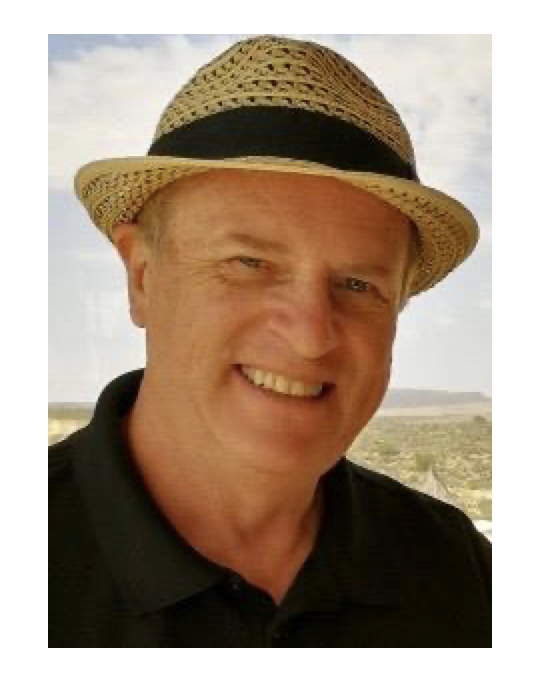
- absent members are kept engaged because they can attend from anywhere;
- make-ups are easy;
- you have a recorded reference copy of you meetings if you choose;
- members are retained because conflicts are overcome (that why e-clubs like the Passport Club were started);
- Clubs can attract younger member, because in general young people hate traditional meetings, but 95% will attend an on-line meeting;
- Board meeting are easier, because board members can be anywhere;
- Speakers can be from anywhere in the world.
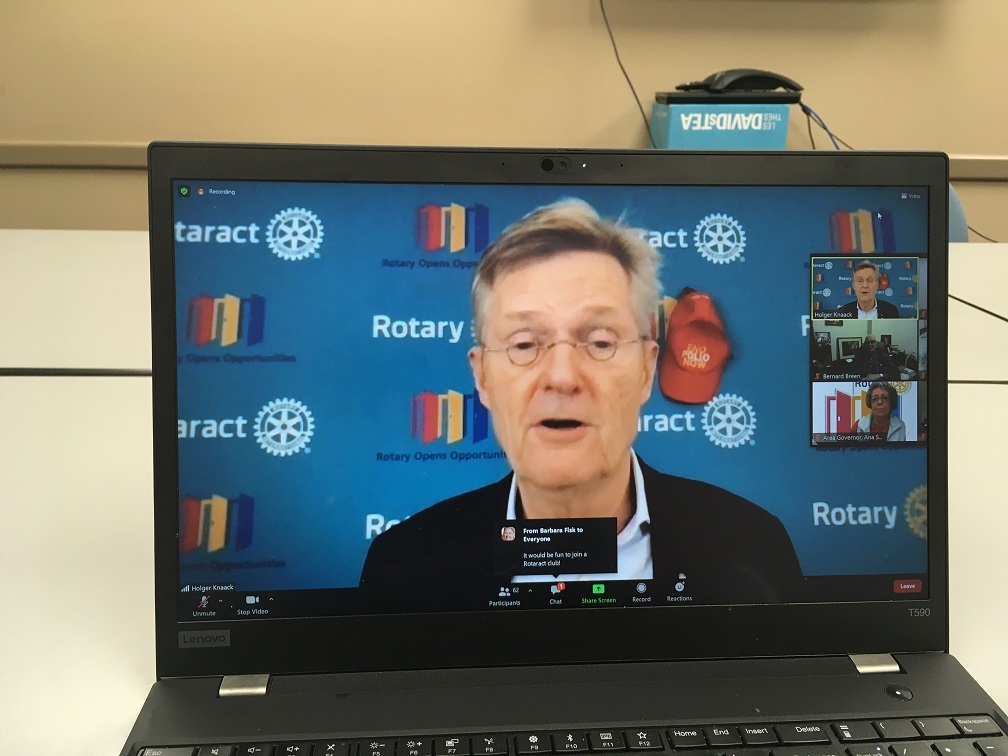
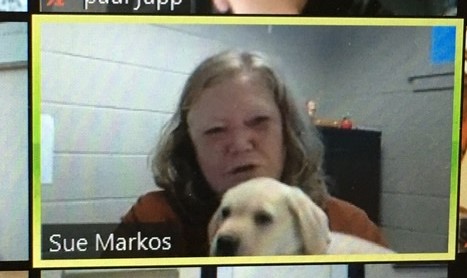
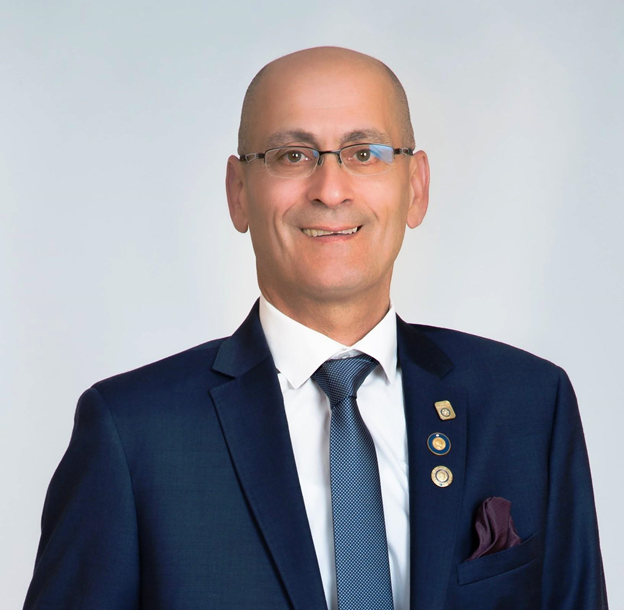
- Member of the Rotary Club of West Ottawa since 2003
- Club President 2013-14
- Years as AG 2014-2019, 5 years
- District Legislative Committee
- Completed all levels of Rotary Leadership Institute (RLI)
- Paul Harris X 2
- Bequest Society
- Lloyd Loynes Volunteer award recipient (Rotary Club of West Ottawa)



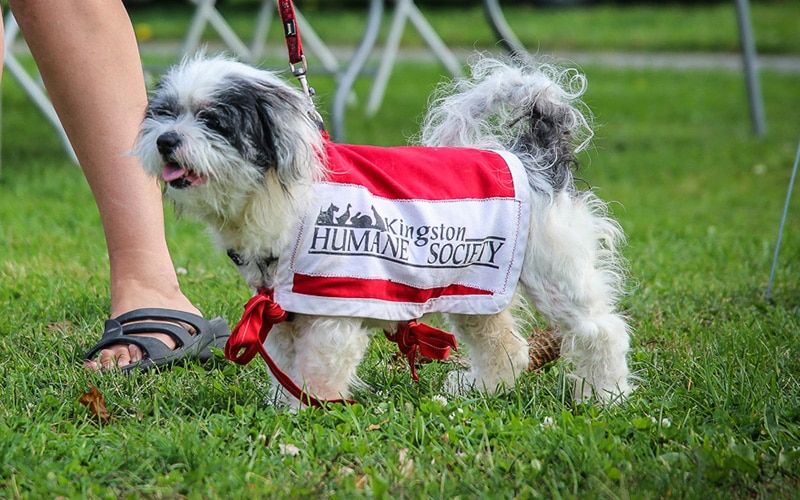


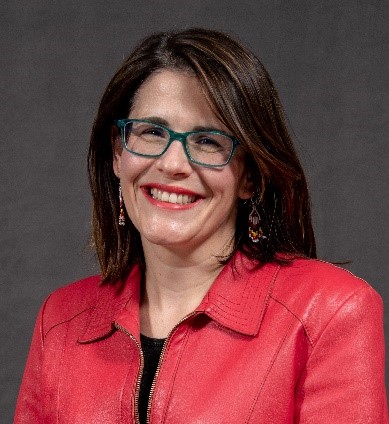
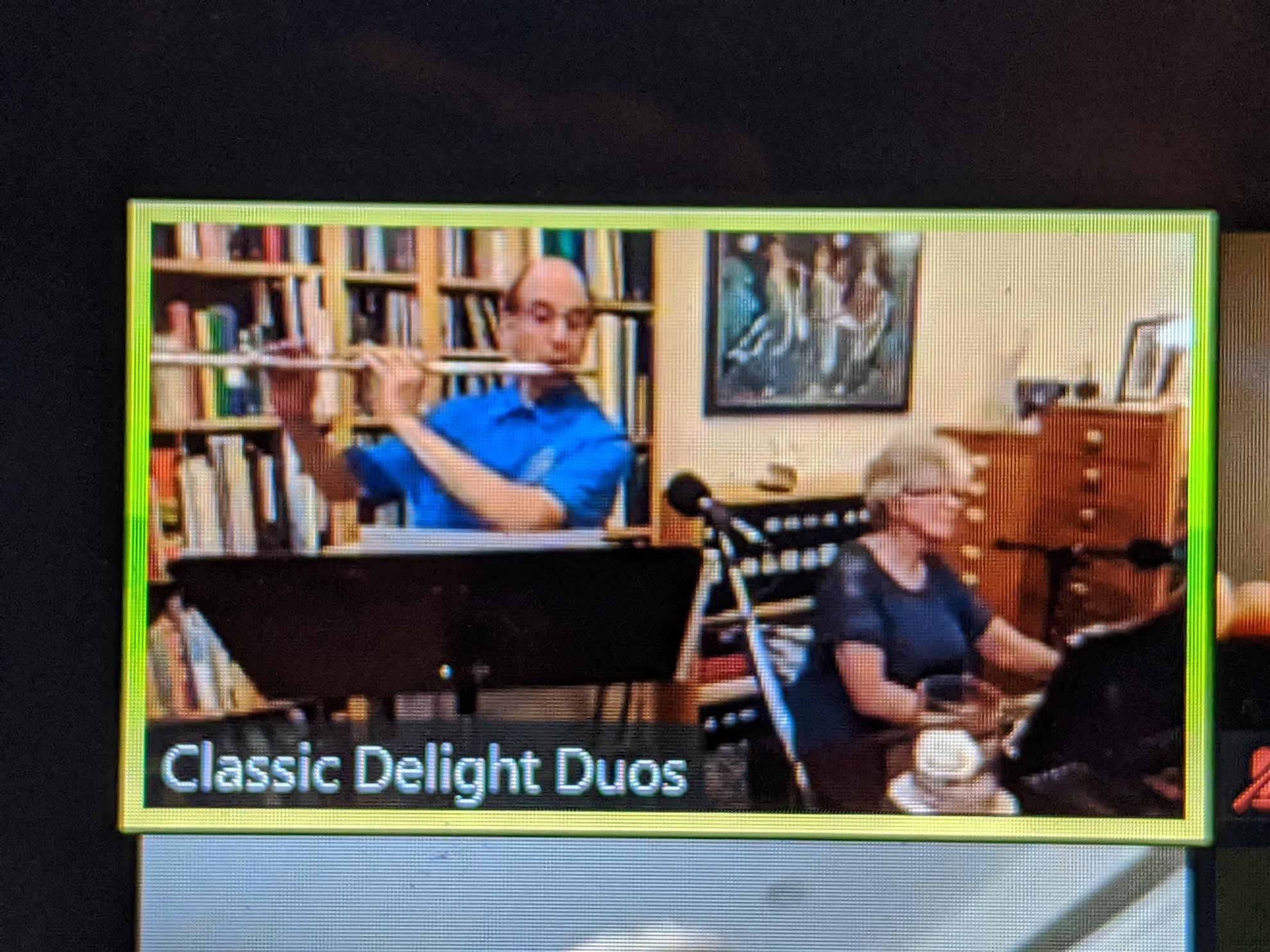
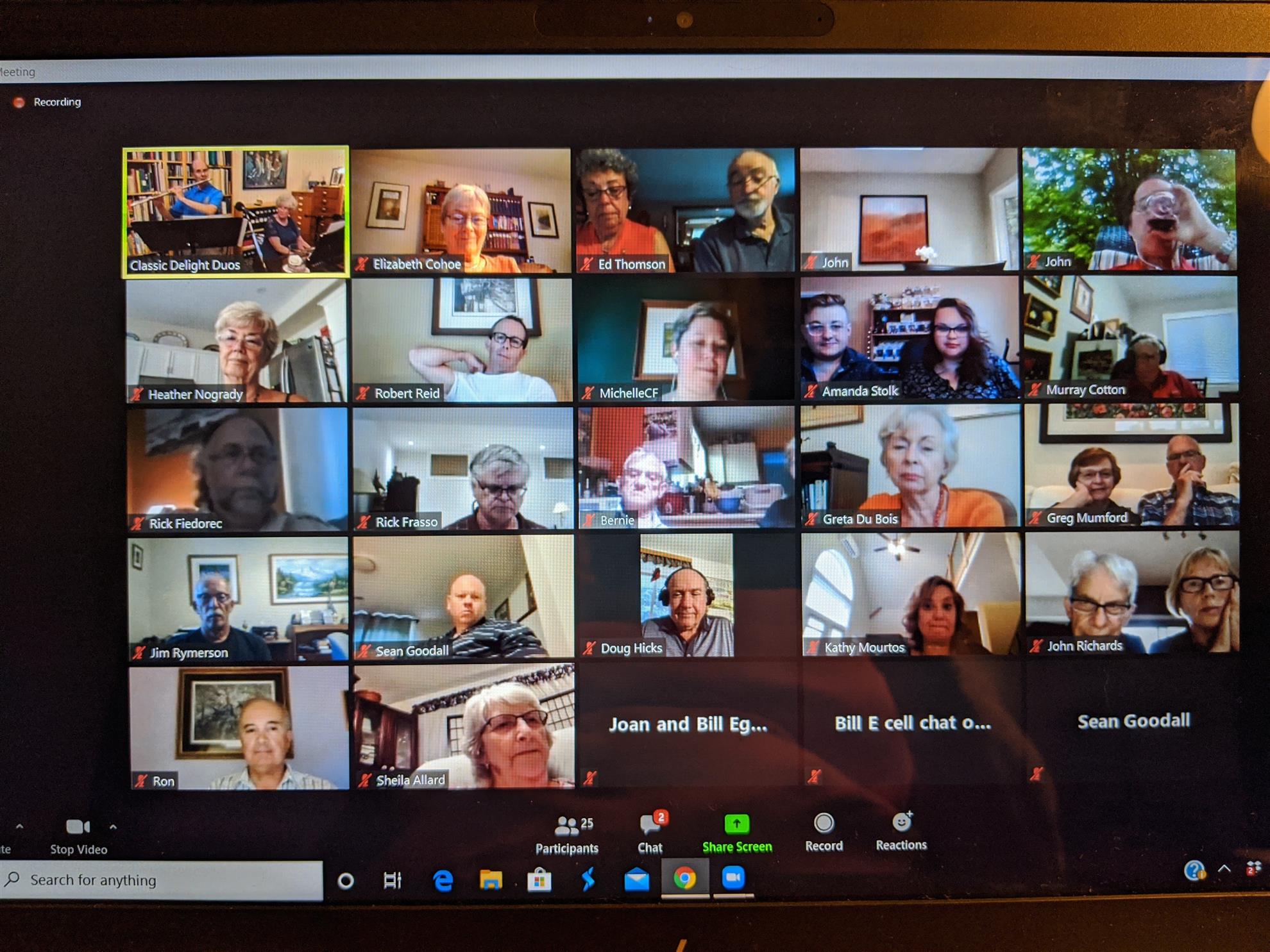
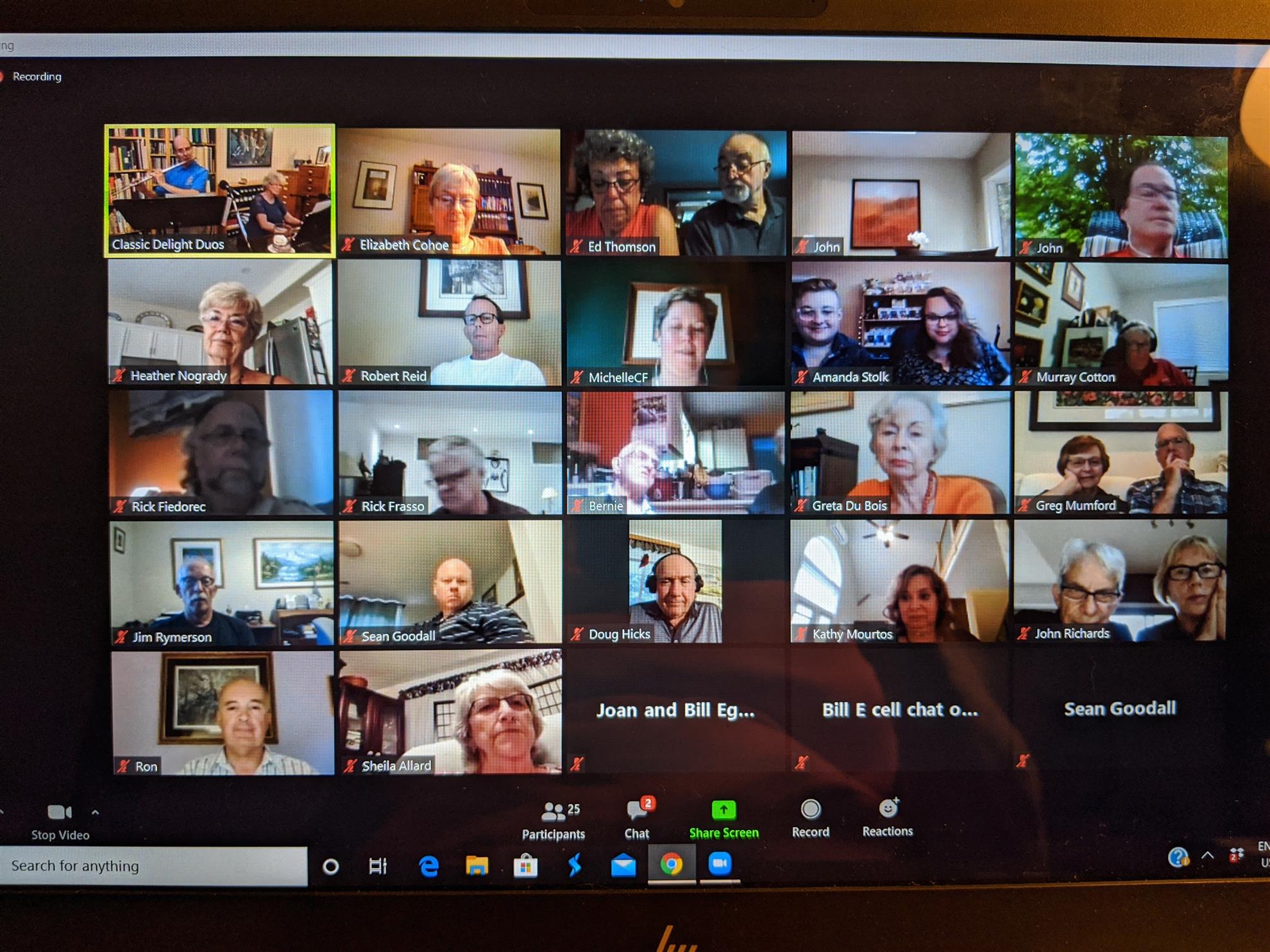

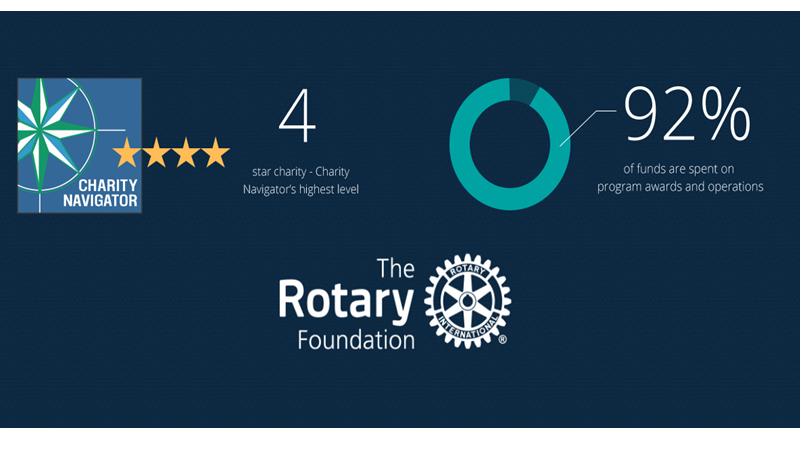

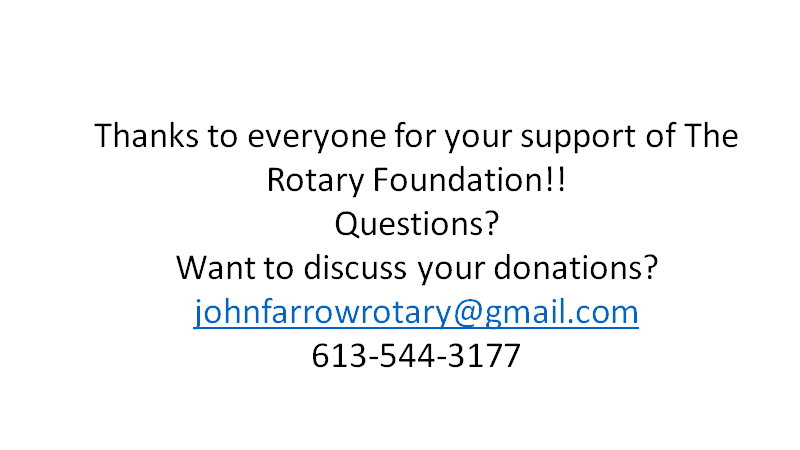
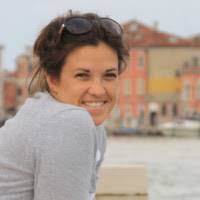

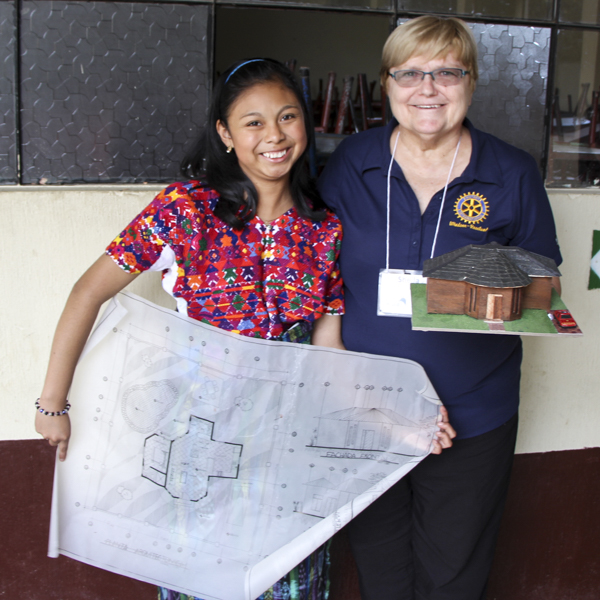
John Farrow introduced Greg Podmore. Greg is a member of the Rotary Club of Grand Prairie Alberta, and his club has been involved in a large Guatemala literacy project since 2004. https://www.guatemalaliteracy.org/
Greg told us about the high need for their program among indigenous children in Guatemala. Four out of five are illiterate. Parents cannot afford to send them to school. This is a large grass roots project that receives $200,000 annually from the Rotary Foundation. There are also large donations from around the world. Rotary works with an organization in Guatemala called Cooperative for Education. It all started in Cincinnati by two young men who were teachers in Guatemala who thought that text books could be provided to students there. 600 Rotary Clubs around the world are now involved. It started with text books, and then expanded to computers. Children find the books to be exciting. One third of indigenous people cannot read or write. Teachers receive two years of training. First, a story is read to the children. Then when they understand it, they take the story back and put on puppet shows or act out the stories. Later they learn to write their own stories.
At first, the adults didn’t understand why their children needed this. The books include learning about math, social studies, science and Spanish. 60% of mid level jobs require a knowledge of computers. 95% of the individuals who go through the program are able to get employment.
There is a sustainability plan, and the schools also put in money.
RISE is a youth development program that starts in grade 7. Students often leave school after grade 6. Students are chosen in grades 5 or 6 for RISE. They look for tough and determined kids, and not necessarily the brightest ones. They are also children whose parents cannot afford their education. Without this program, 95% will never finish high school. They will go to work farming like their parents did.
The Rise program is much more than books. They gather monthly for training in things like interviewing for jobs. They also tour places where employment may be located. They come together to see different ways to improve their communities. Each student has a counsellor. They learn about good citizenship, and volunteering in their communities to help needy people. It’s all about breaking the cycle of poverty.
How can you get involved? Rotary Clubs can sponsor a class or a student in the Rise program. Canada has also matched the TRF grants.
The next trip to Guatemala is planned for February 2021.
Greta spoke about attending a Friendship Exchange in Guatemala. John Gale spoke about a local group of Rotarians that attends the Uniendo Conference in Central America, and asked whether this project is linked to the Guatemalan stove project. (They are not.)
The question was asked whether they are mostly dealing with just rural populations or also cities. They are involved in both, but mainly in the western highlands.
Heather Nogrady offered our thanks with a virtual loaf of bread. It was interesting to hear about how this project evolved, and to see photos of children who were so obviously happy and proud, and that said a lot.
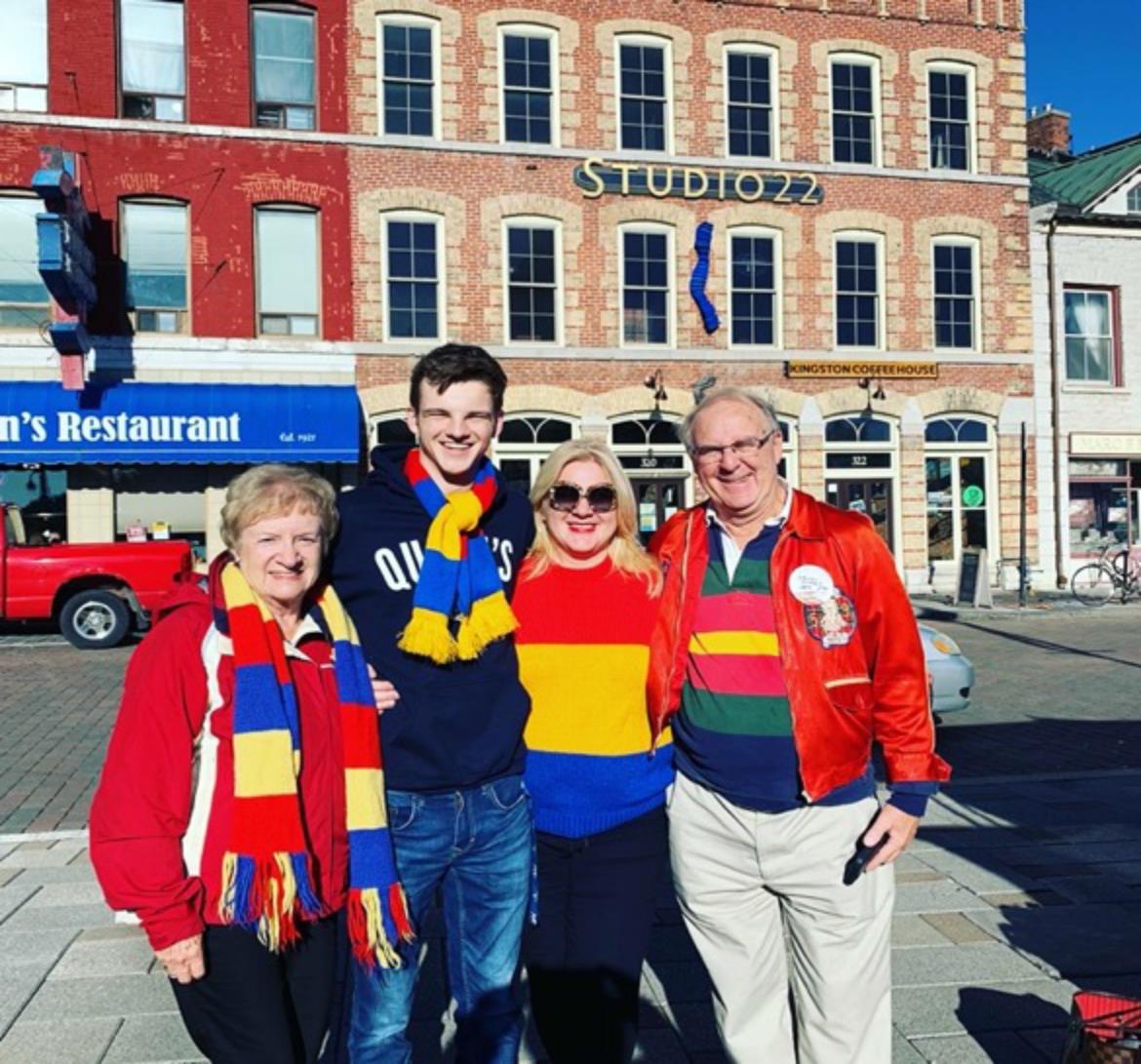
Laura: It’s too early for absolute numbers. The Elder Mistreatment Survey, the largest of its kind, gives detailed background. Abuse takes many forms. We’re currently looking at agency response numbers, including from the police and seniors’ help lines. Call volumes are up about 10 times what they were in pre-COVID-19 times. Usually elder abuse is significantly under-reported.
There are some 4,000 students who participate in the Food Sharing program in schools. Many of these children receive breakfast, lunch and a snack every school day between September and June. My program, Isthmus, bridges the gap between Friday and Monday for these children giving them a hamper of food for the weekend. With COVID-19, numbers are growing and will continue to do so.
When the schools closed, these programs had to rethink how to get food to these children (and their families). The FSP and Isthmus partnered sharing resources and ideas and, with the help of the Limestone District and Algonquin and Lakeshore Catholic District school boards, and with other partners like Lionhearts and Stock Transportation, we developed a new model. The education boards sought permission from families to share their addresses, phone numbers and number of children in each family. They have subsequently, through their Principals, identified families in need and received the necessary permissions. As of 3:00 pm today, almost 400 families in 31 schools have asked to participate in our food distribution program. Again, this number is sure to grow as situations become more precarious.
We held our first distribution on Friday handing out 226 hampers to 167 families. This test involved the 5 schools that my program serves. Those schools are Rideau Heights PS, JG Simcoe PS, Molly Brant PS, Centennial PS and St. Francis of Assisi CS. Food was purchased or donated on Tuesday and Wednesday. Hampers were packed on Thursday and Friday. The food was delivered between 2:30 pm and 5:30 pm on Friday. Families receiving the food were so thankful!
For this delivery, the hampers included the following items: one block of cheese, one litre of milk, broccoli, a small bag of carrots, 4 apples, 4 bananas, 4 oranges, 2 boxes of mac and cheese, a can of pasta sauce, a package of spaghetti, 2 cups of apple sauce, 2 juice boxes, a loaf of bread and 2 packages of oatmeal. Not enough food to get the family through a whole week but we assume they have other sources of food.
The bread is donated by Cobbs bakery through Lionhearts. The rest of the food is purchased at wholesale prices from Deodatos, Grants No Frills and the Wholesale Club.
Going forward, the plan is to run the Isthmus program (5 schools) one week and the Food Sharing Project the next (26 schools) alternating between the two.
Paul Elsley, Rotary Club of Kingston
P.S. Since I first wrote this note, the number of schools and families has gone up.
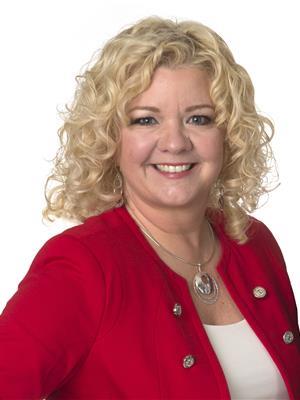
Jackie is a real estate broker and has loved real estate since she was young. She bought her first house at the age of 18! Jackie served as a law clerk for 20 years in real estate, all the while raising two kids on her own. The last 15 years she has been selling real estate. People ask her why - she simply responds I had two kids and a mortgage to pay! Jackie had nine people working in her office. They sold 165 homes last year but she wanted to bring a more personal touch to her business, so she’s downsized to a team including her sister, her two sons and a full-time assistant located at Remax Finest on Gardiners Road.
Jackie thought everyone wanted to know how real estate was managing during the Covid crisis. Several government bodies regulate real estate - new clauses are present in every offer. There is a chance that the registry office might be closed to process transactions and allowances are made for this. Interactions with people now mean masks, gloves, buyer and seller declarations, and acknowledgement of the risks of open houses. Although a lot is done virtually Jackie cautioned that buying a house totally over the Internet is not a good idea. When showing a home now sellers are asked to turn on the lights, leave the doors open, some of the cupboards open, and the perspective buyers are only allowed to touch the doorknobs which are cleaned often. Buyers even leave their shoes outside. Jackie also belongs to an organization of the top 100 Remax agents across Canada. They chat daily about ways to meet the challenges. She doesn’t listen to the news much but the phones are ringing, probably because Canadians are not good at being cooped up. We have withstood that for 30 to 45 days, but now people need to move and real estate is an essential service. Jackie continues to offer services like grocery delivery to senior clients - she has some clients in care homes and arranged for a delivery of chocolate recently to one of them. One of the great things is how we’re helping each other, and and she is actually enjoying spring for the first time in a long time because it’s usually her busiest season. She thinks there may be a surge coming - she has 20 listings ready to go and some people just can’t wait. There are still bidding wars although instead of ten bidders we now have two or three.
Questions? John Farrow asked what is the status of the military? Jackie functions as a rental agent as well as a sales agent for military. Transactions that were already in process have been completed and the leaders are moving regardless of the Covid crisis. She said that the effect on the Kingston real estate market market is not as big as you think.
John also asked the difference between a broker and an agent. Jackie responded after becoming an agent there is an education process to get to be a broker - you can then become our broker manager and a broker owner when you own real estate brokerage.
Greg Mumford asked about her partner Tim? They are separate now. Jackie figures she has about 10 years left in real estate and it was a business decision to downsize.
Bill Egnatoff asked if Jackie has mentored other agents? Jackie responded she mentors both clients and agents - she gives lots of new agents advice and they share forms and good ideas. She learns from her daily interactions with customers and shares them with her team. Real estate is full of problems and she learns every day how to handle those. Some day she will write a book about mushrooms, bats, and buried logs!
Martin asked how does it affect your family time? Jackie said it’s tough when you’re a single mom - you need to learn to set time aside for yourself. She once had a seller call her on Christmas Eve but politely rebuffed them. She’s never worked on Easter, Thanksgiving or Christmas. Jackie is part of a large family which matters to her a lot - she shares this with her team and she tells her sons "don’t be like me"!




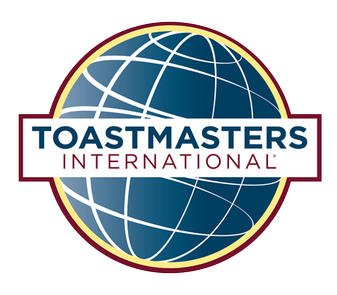
.png)












